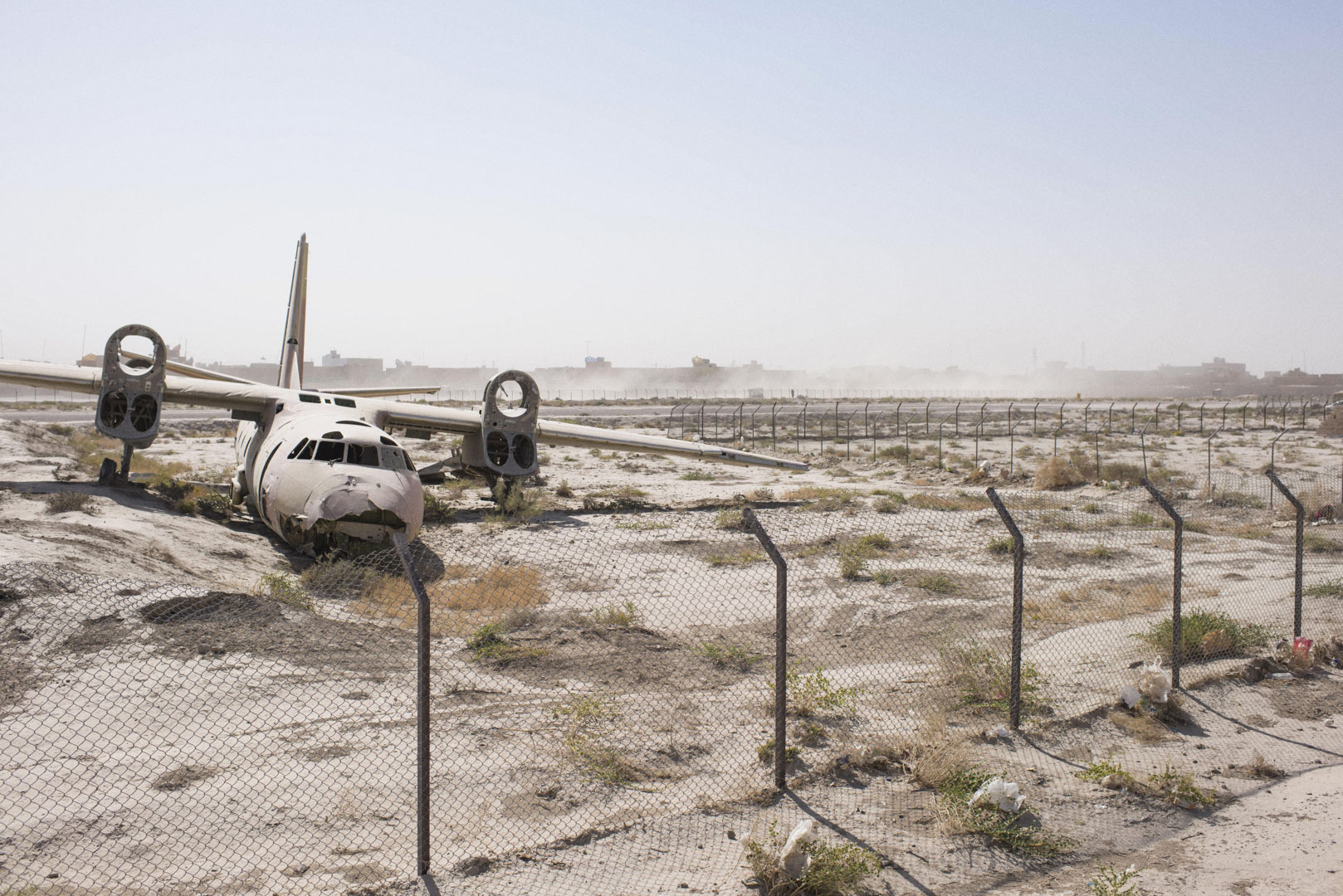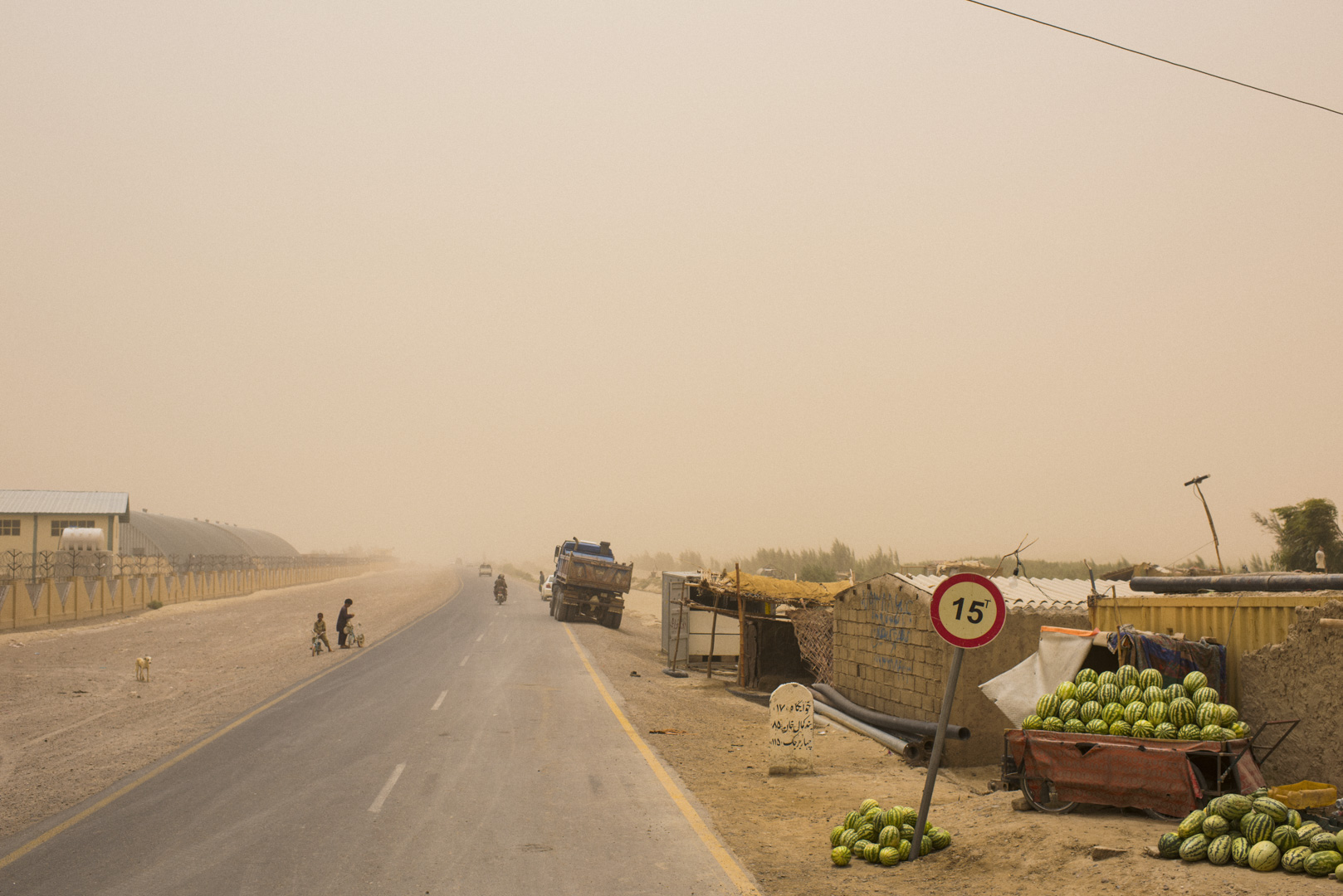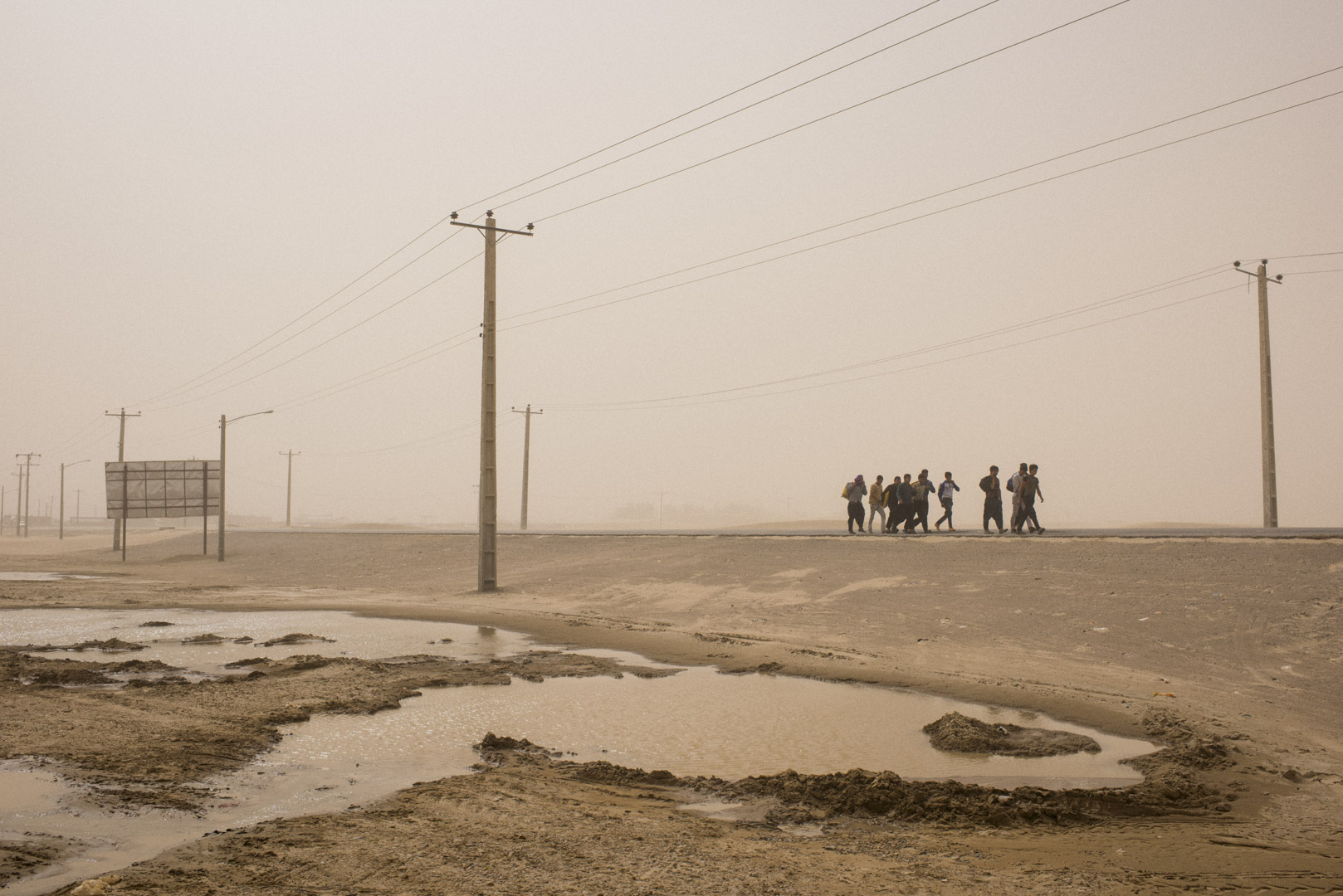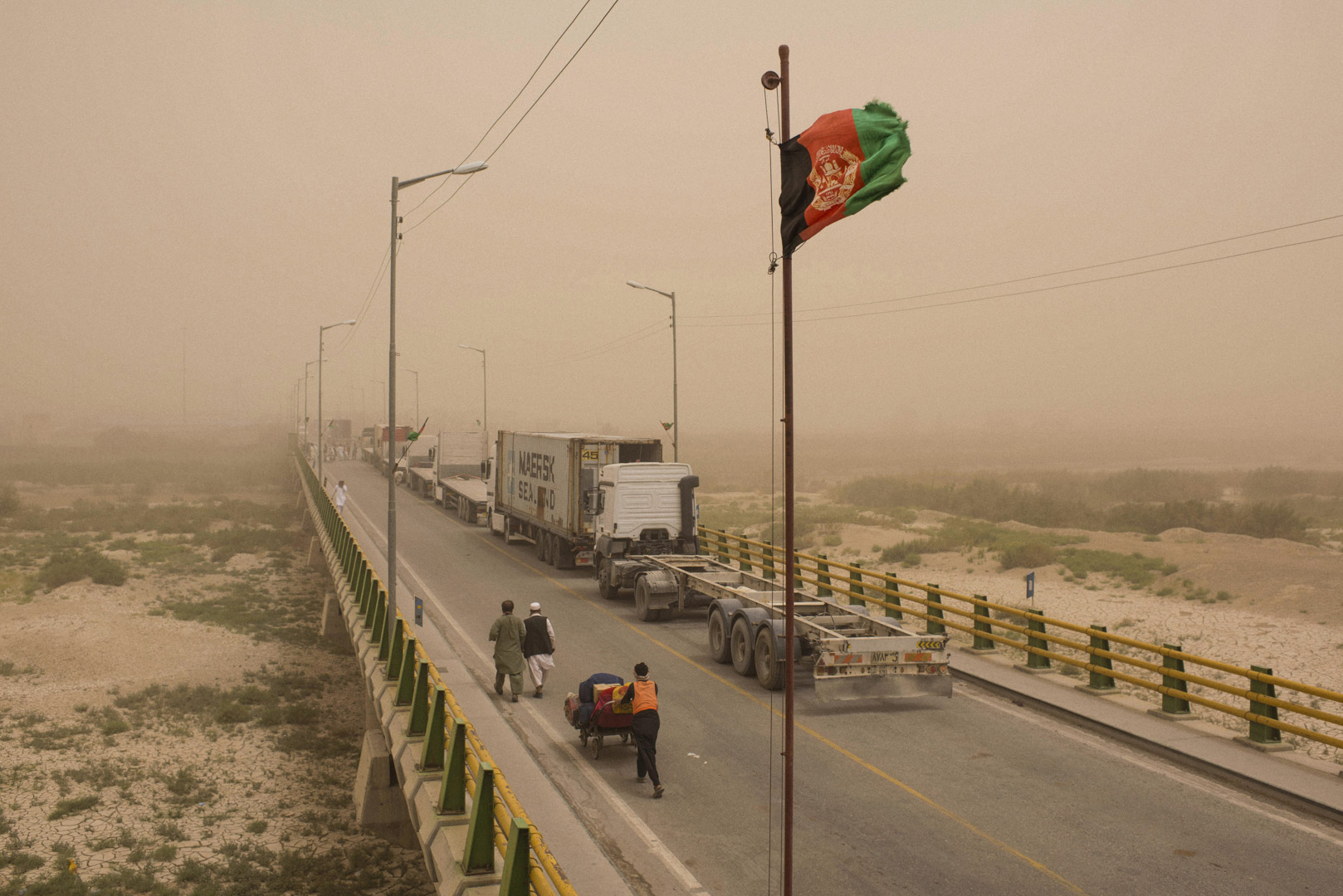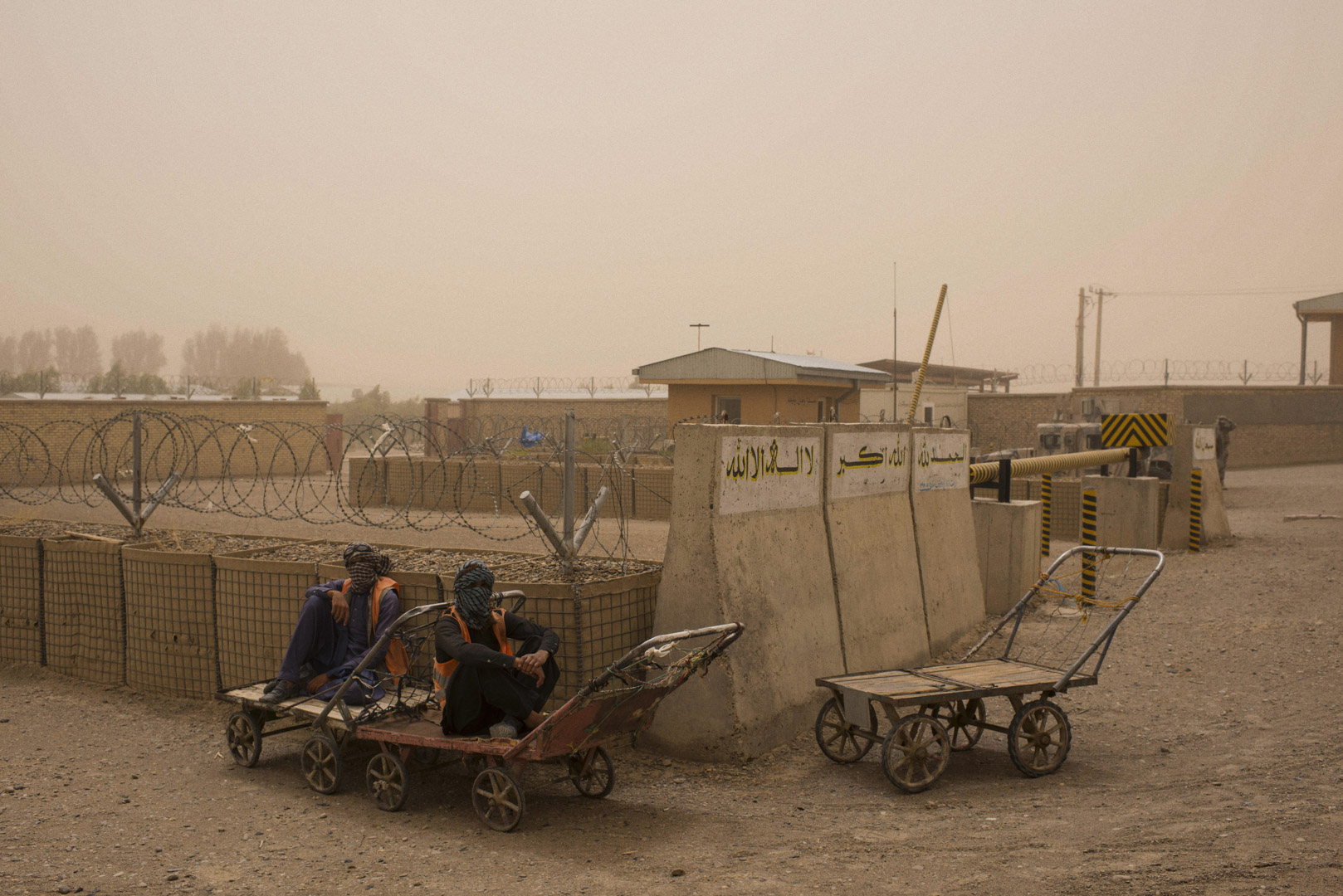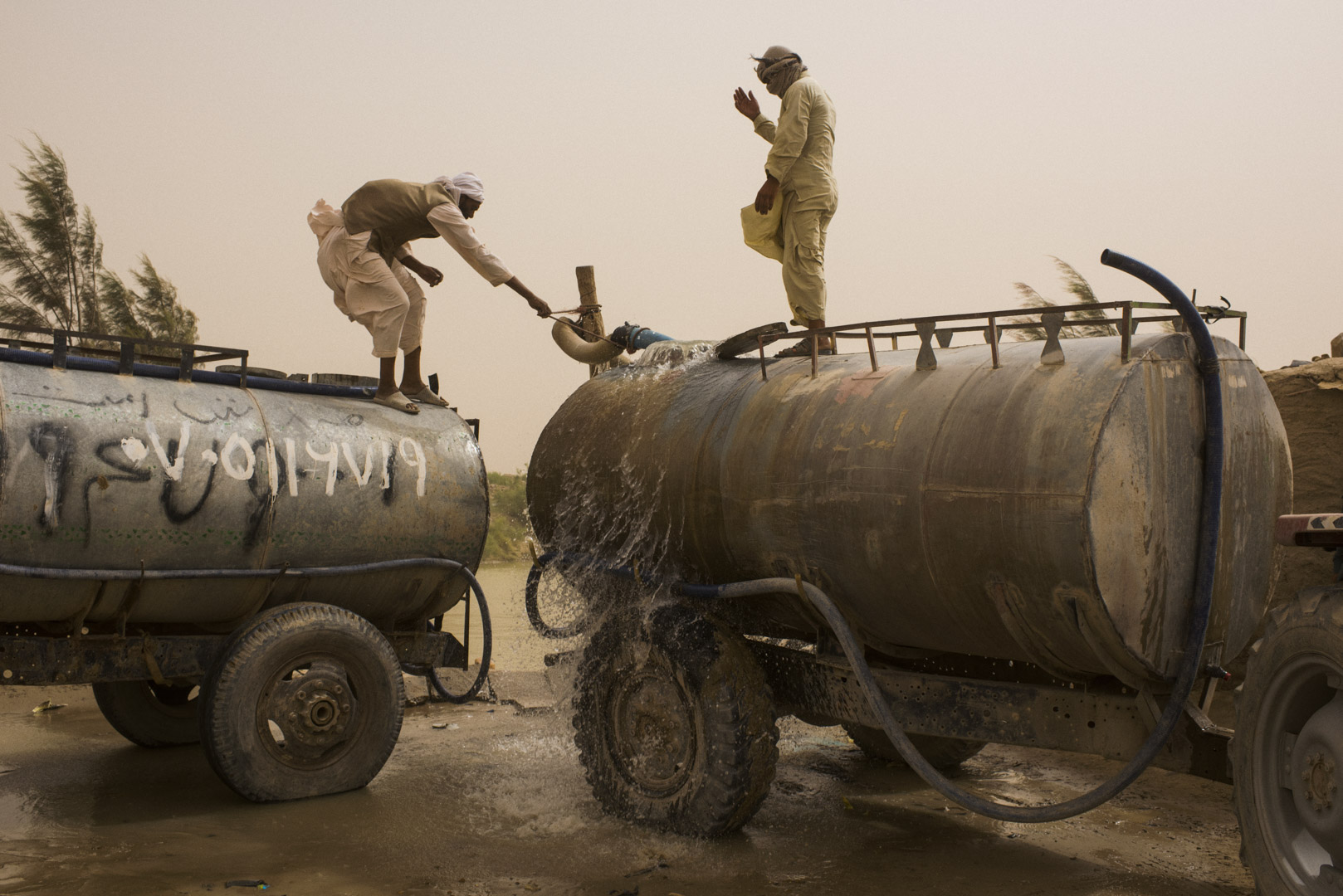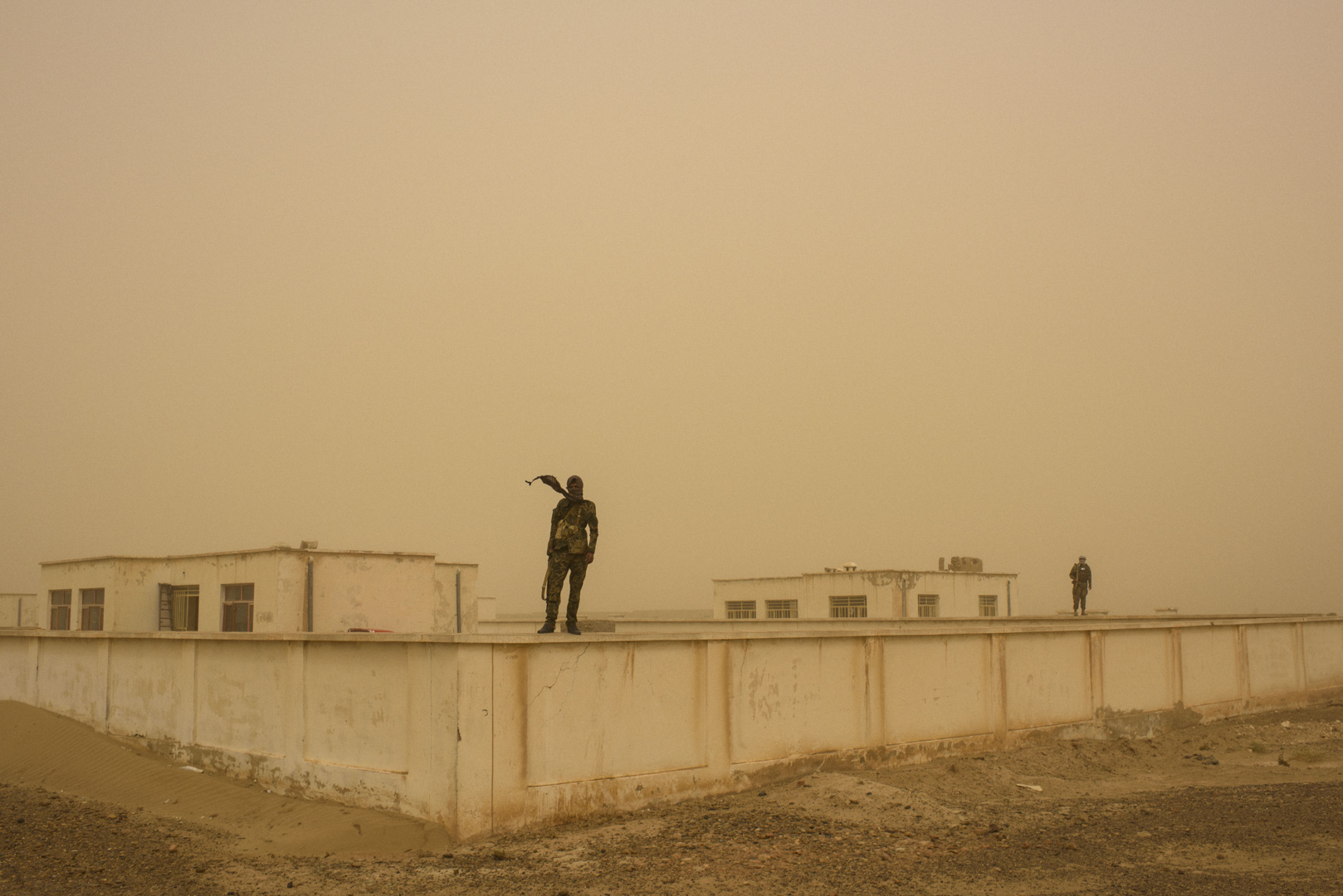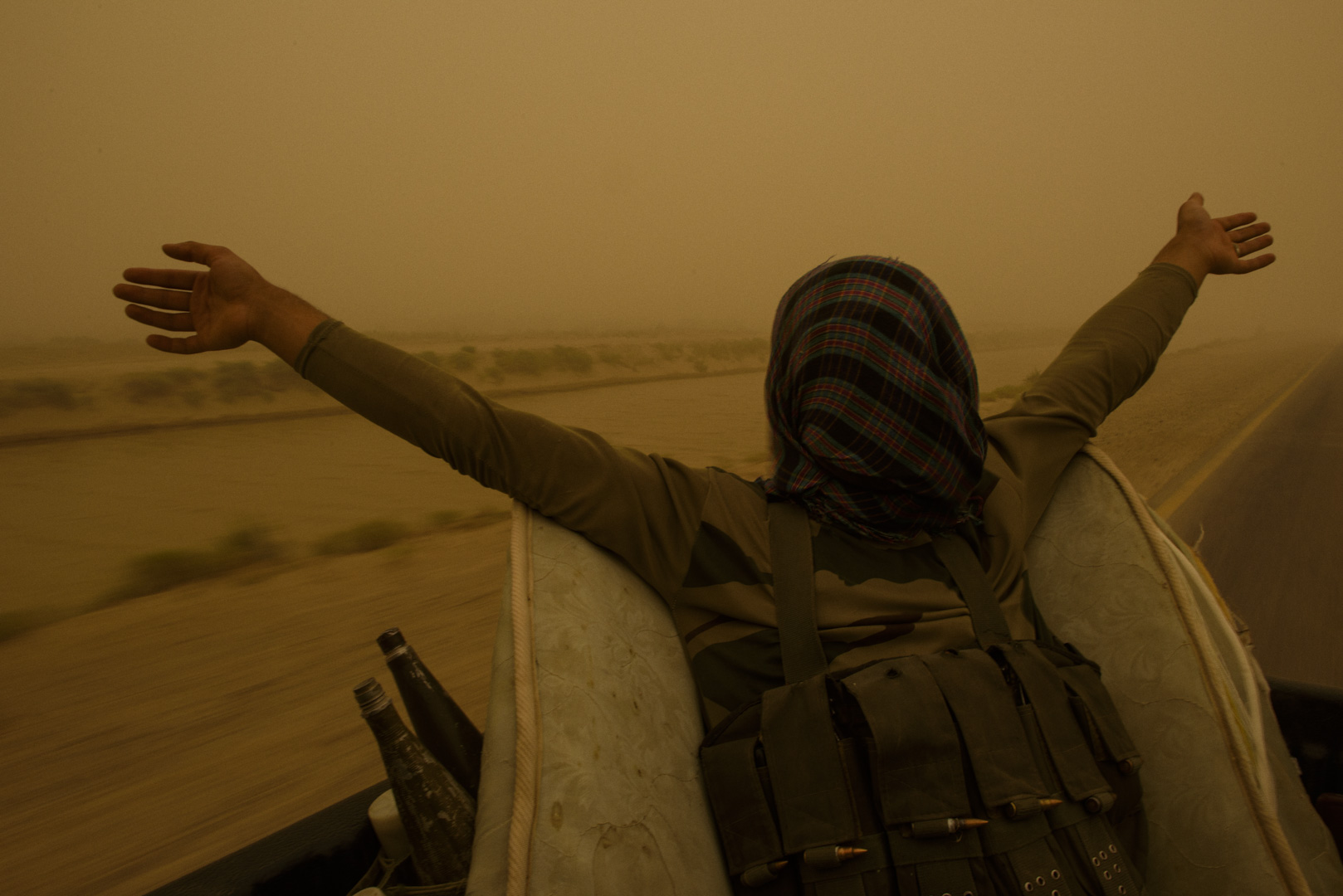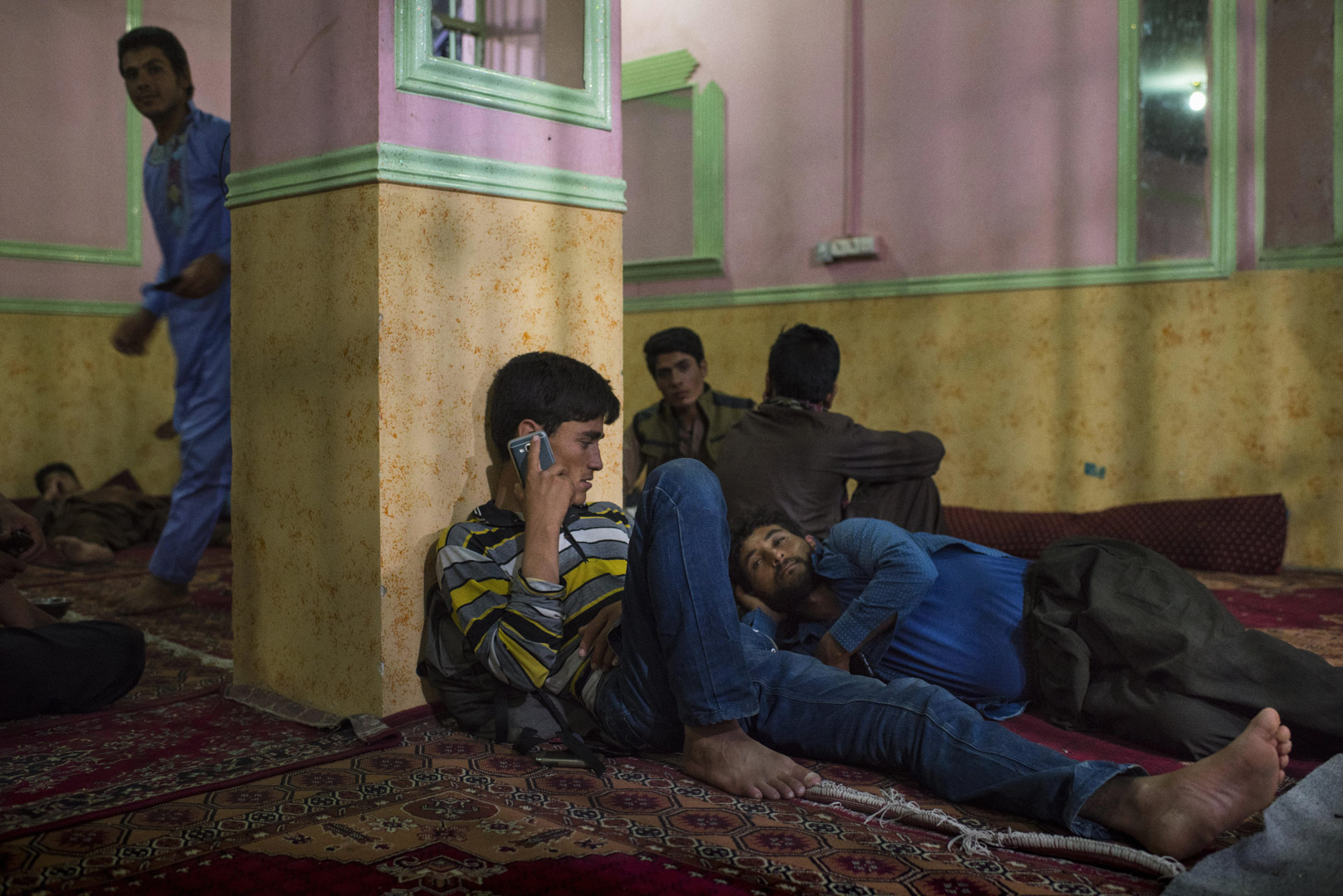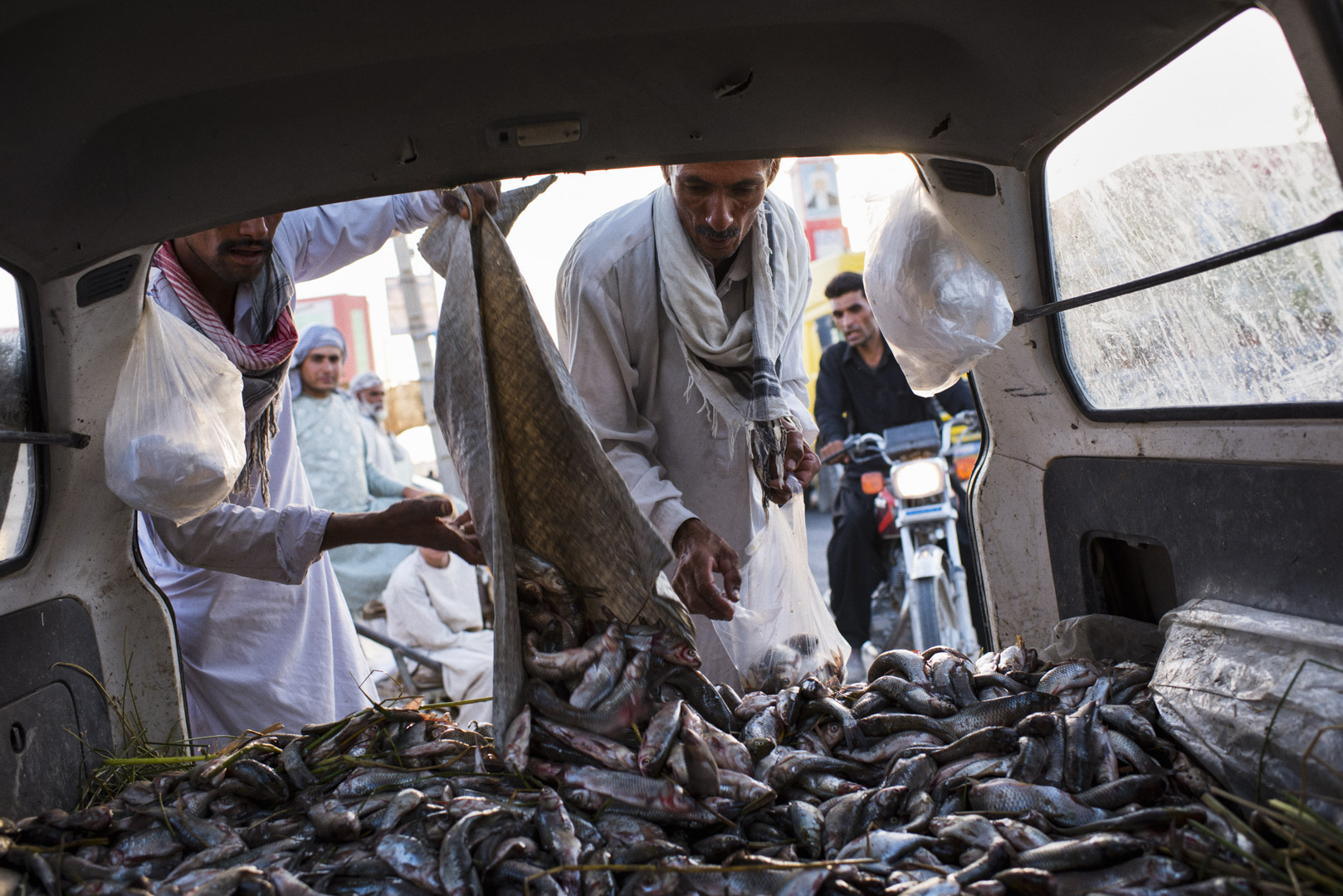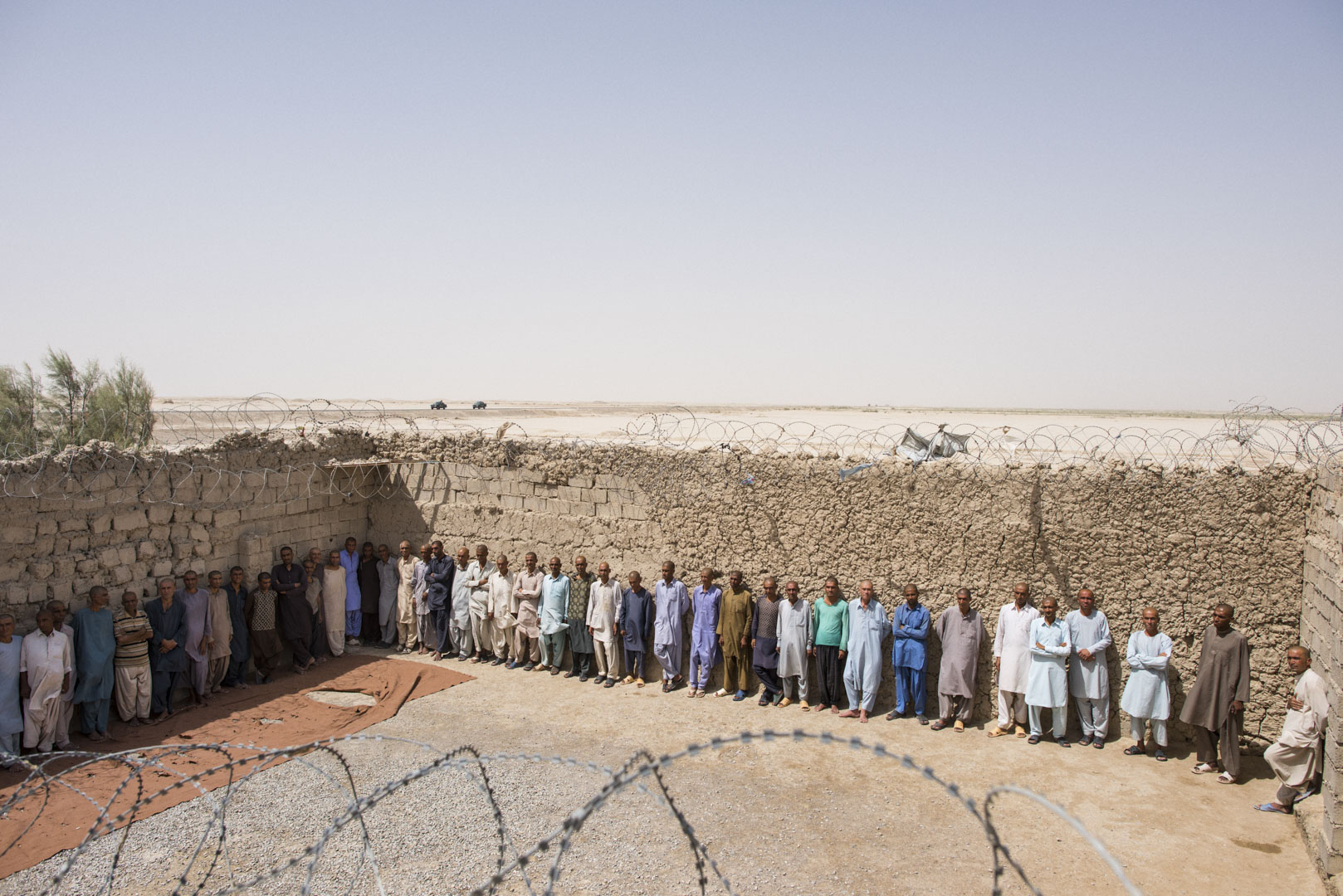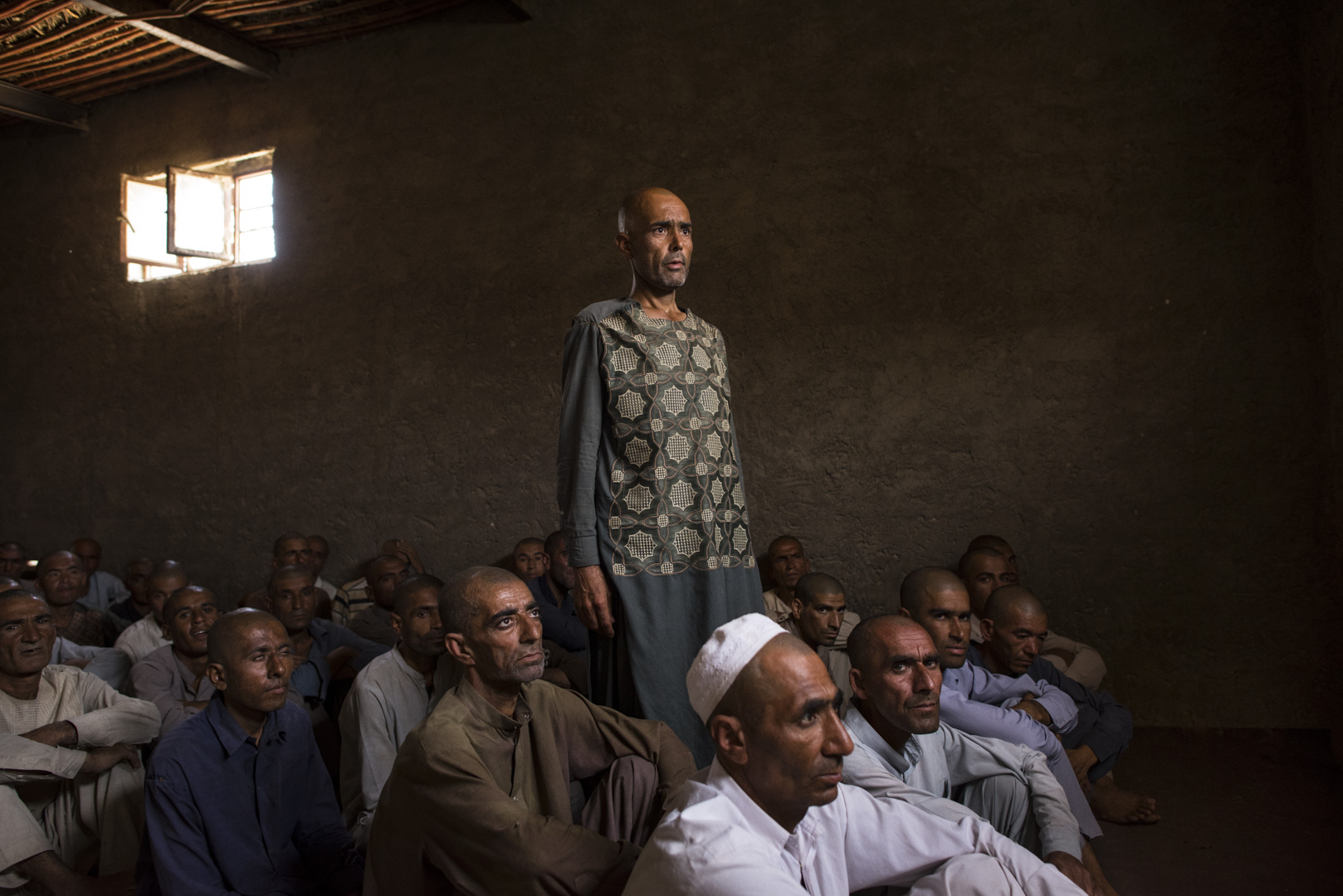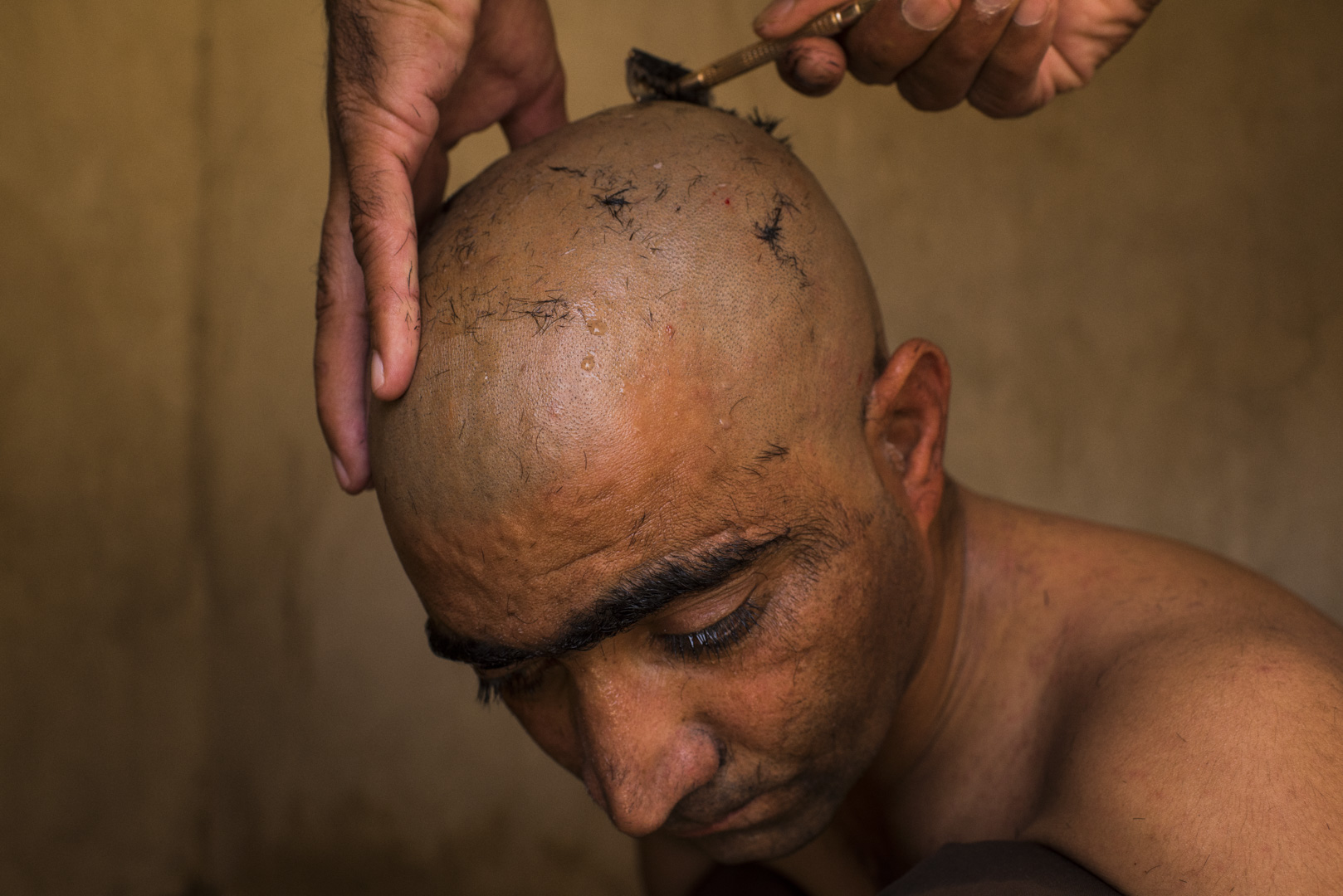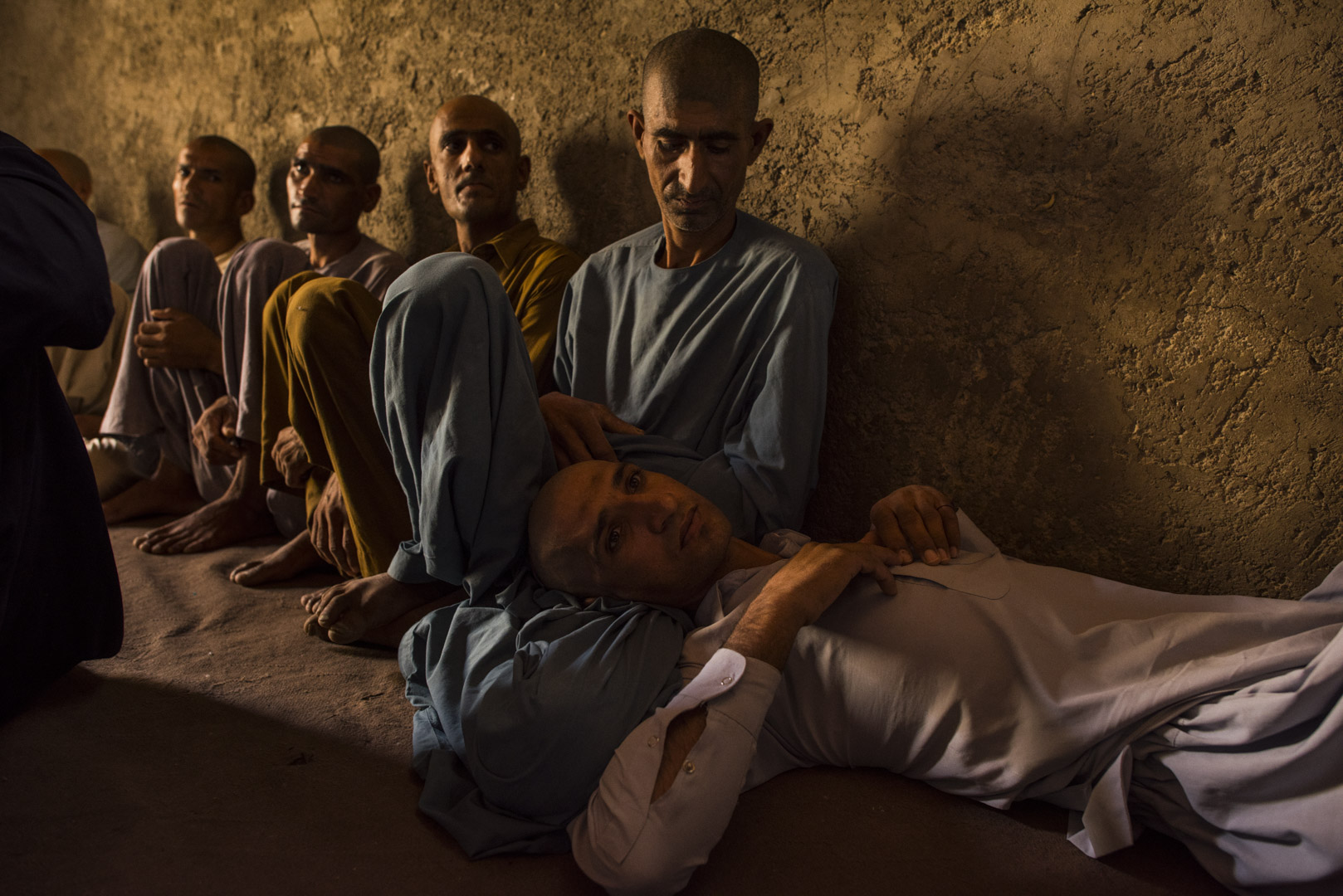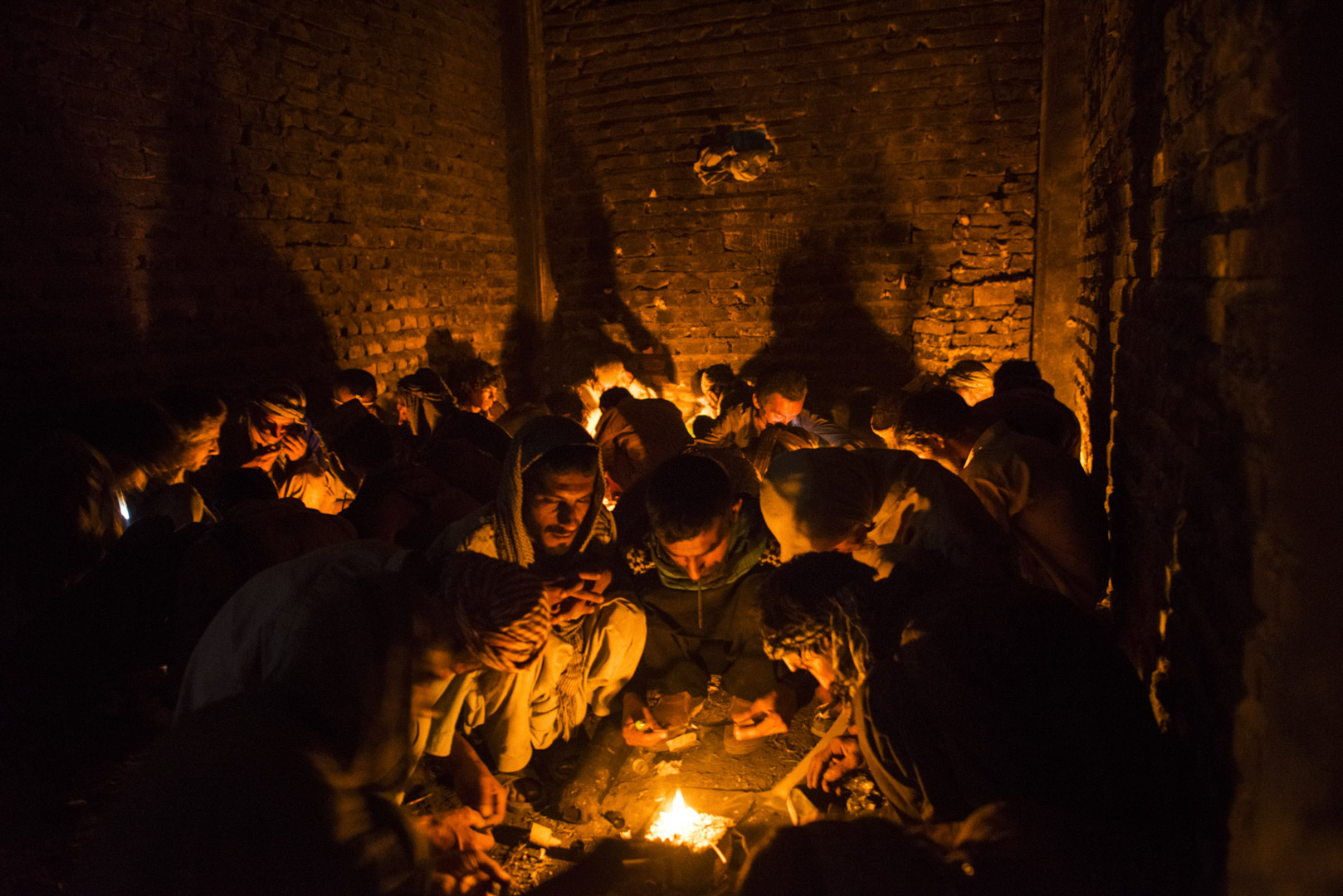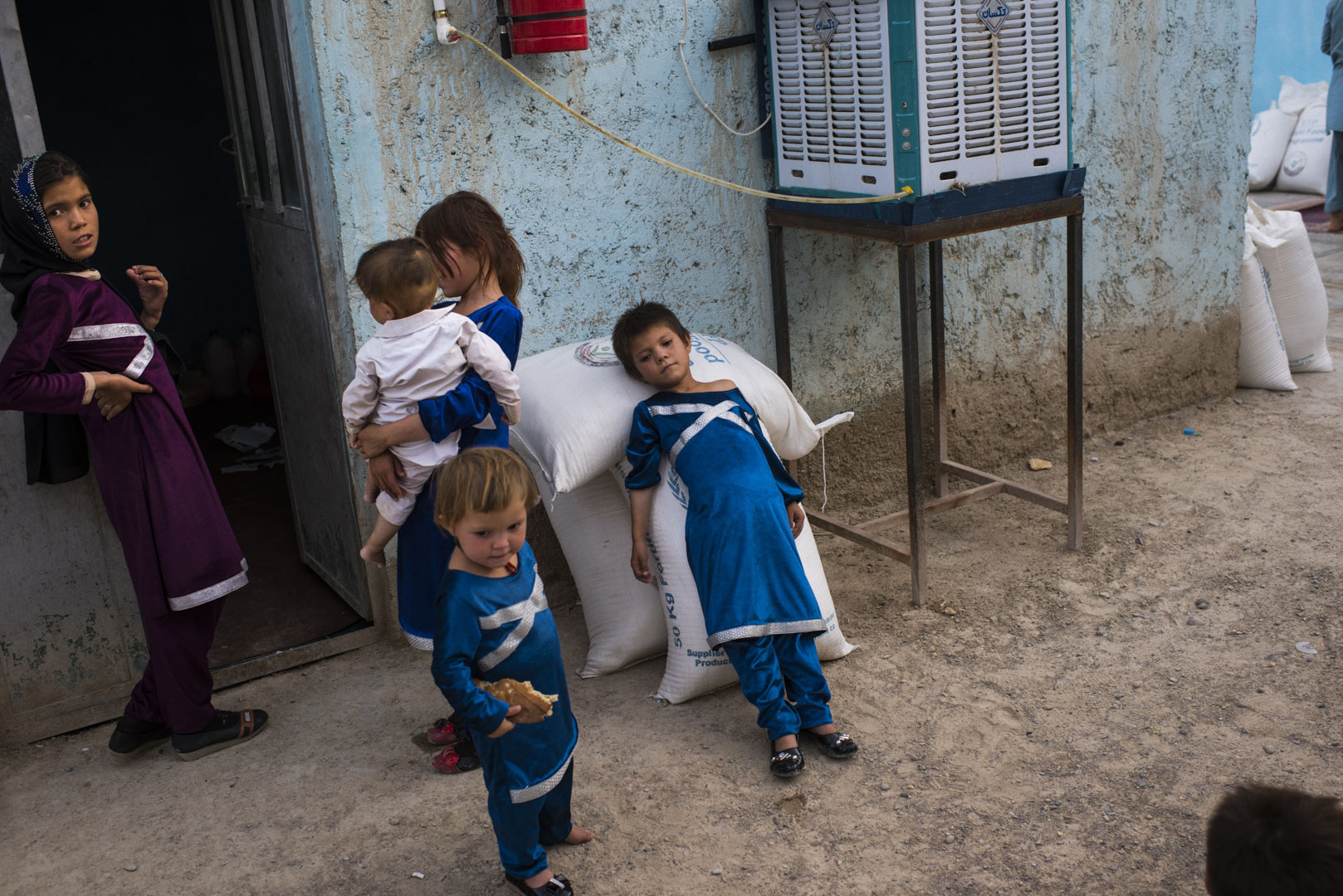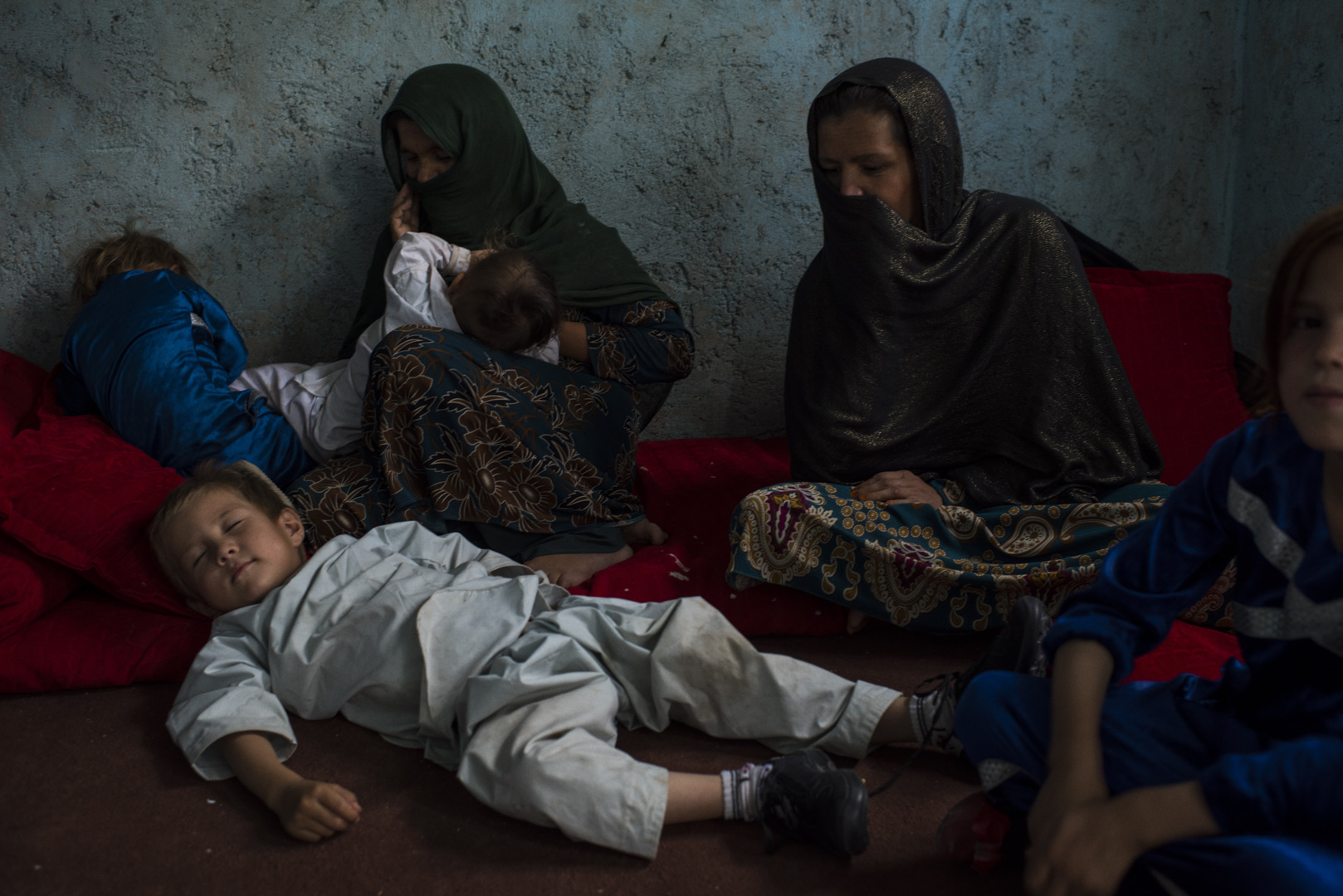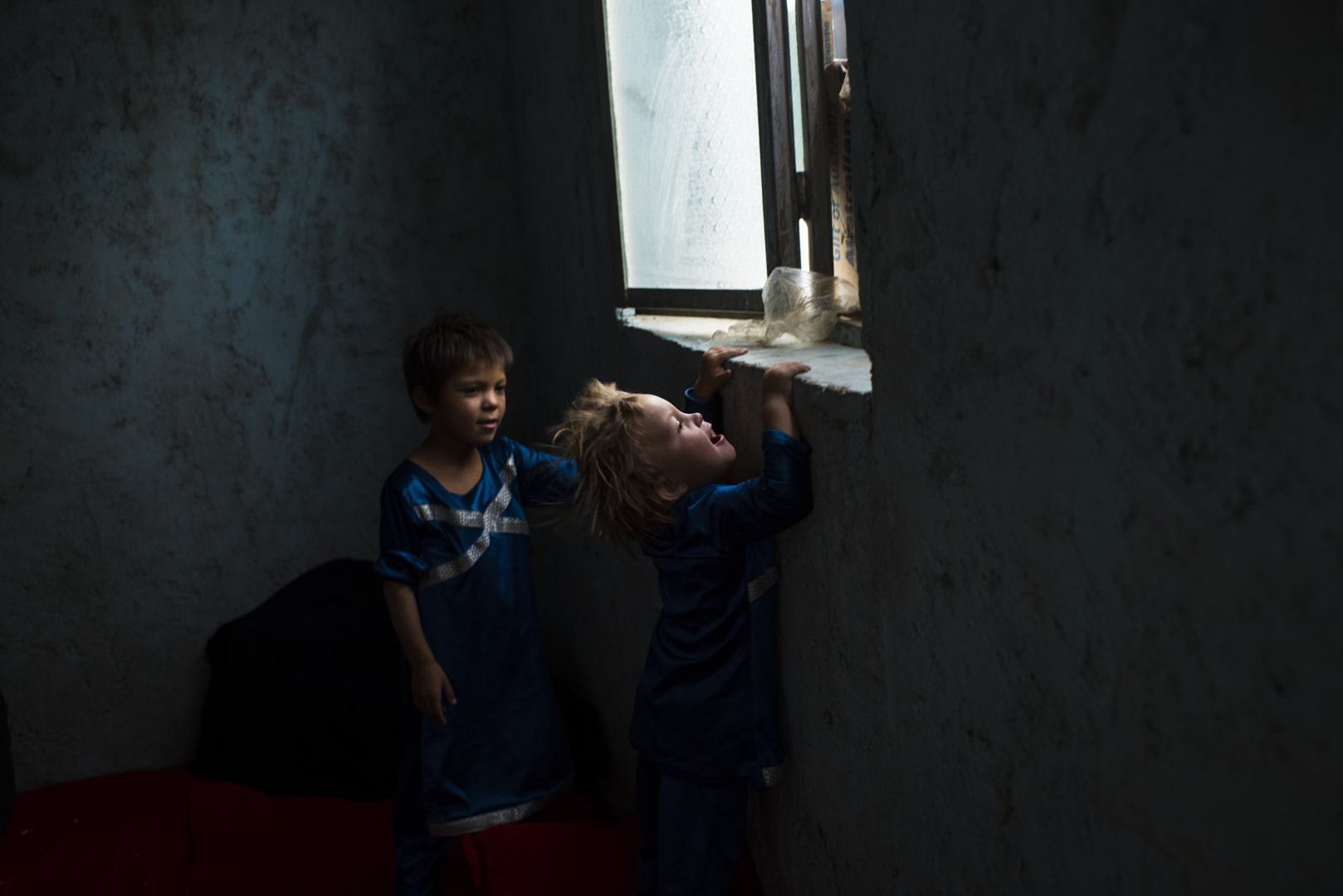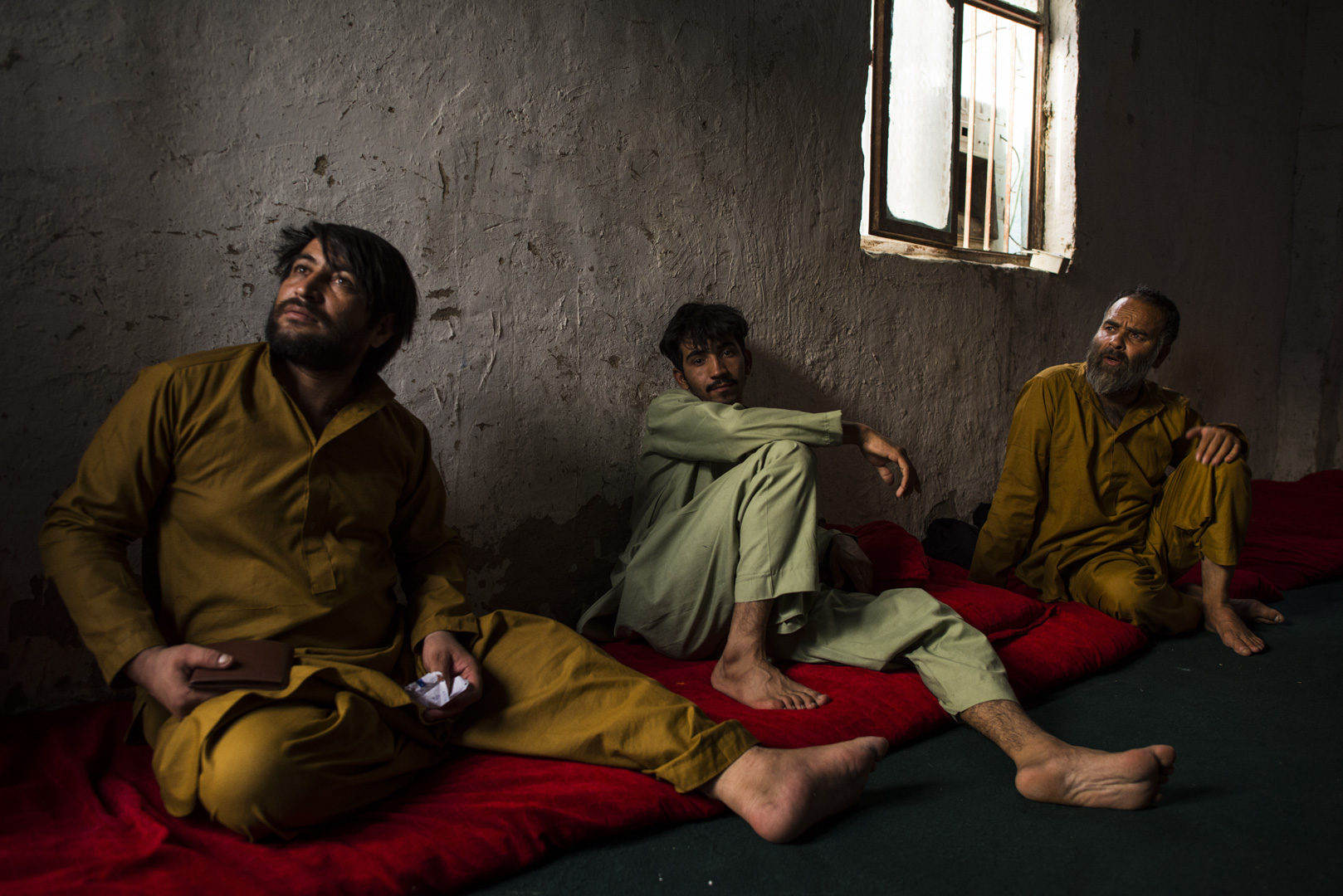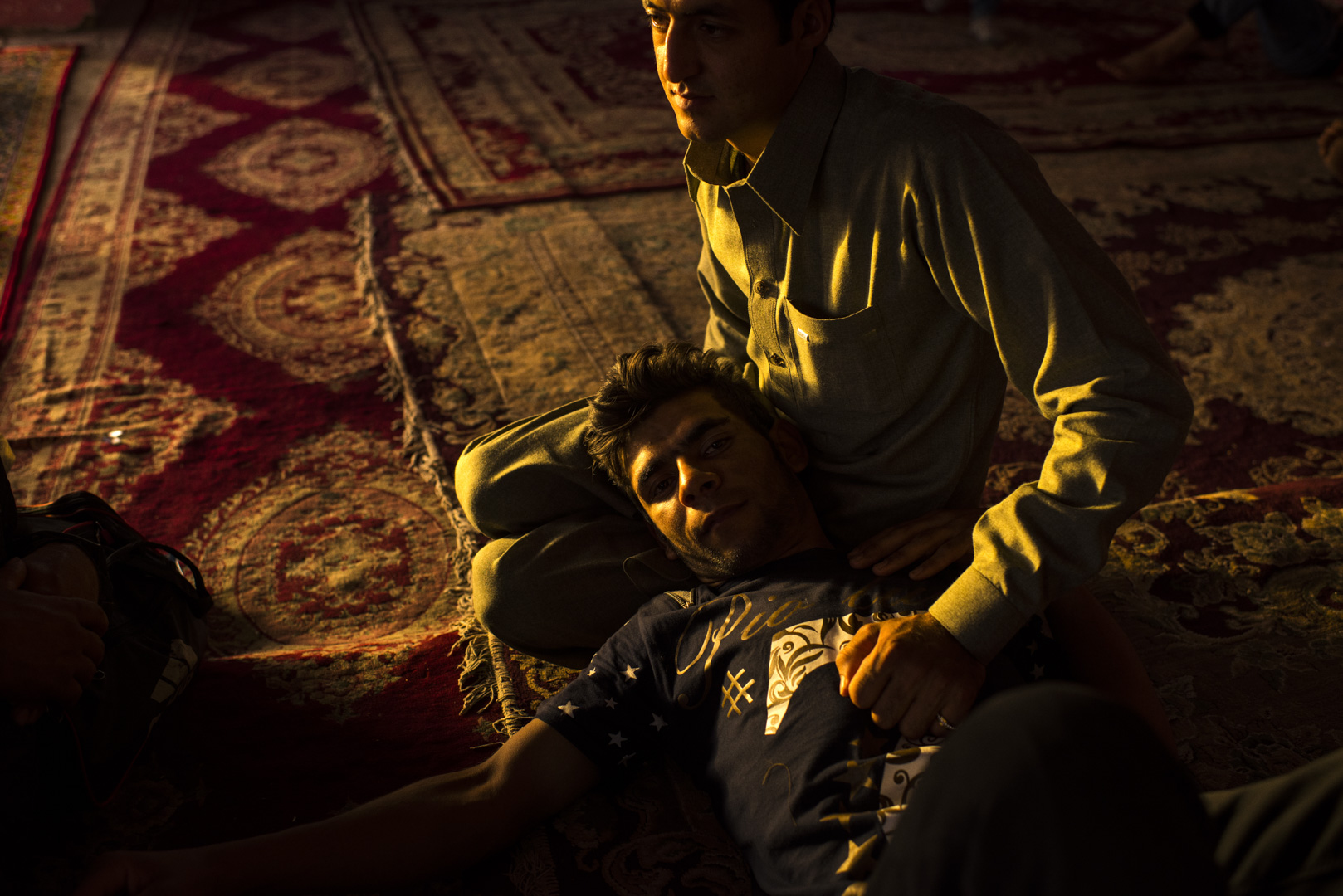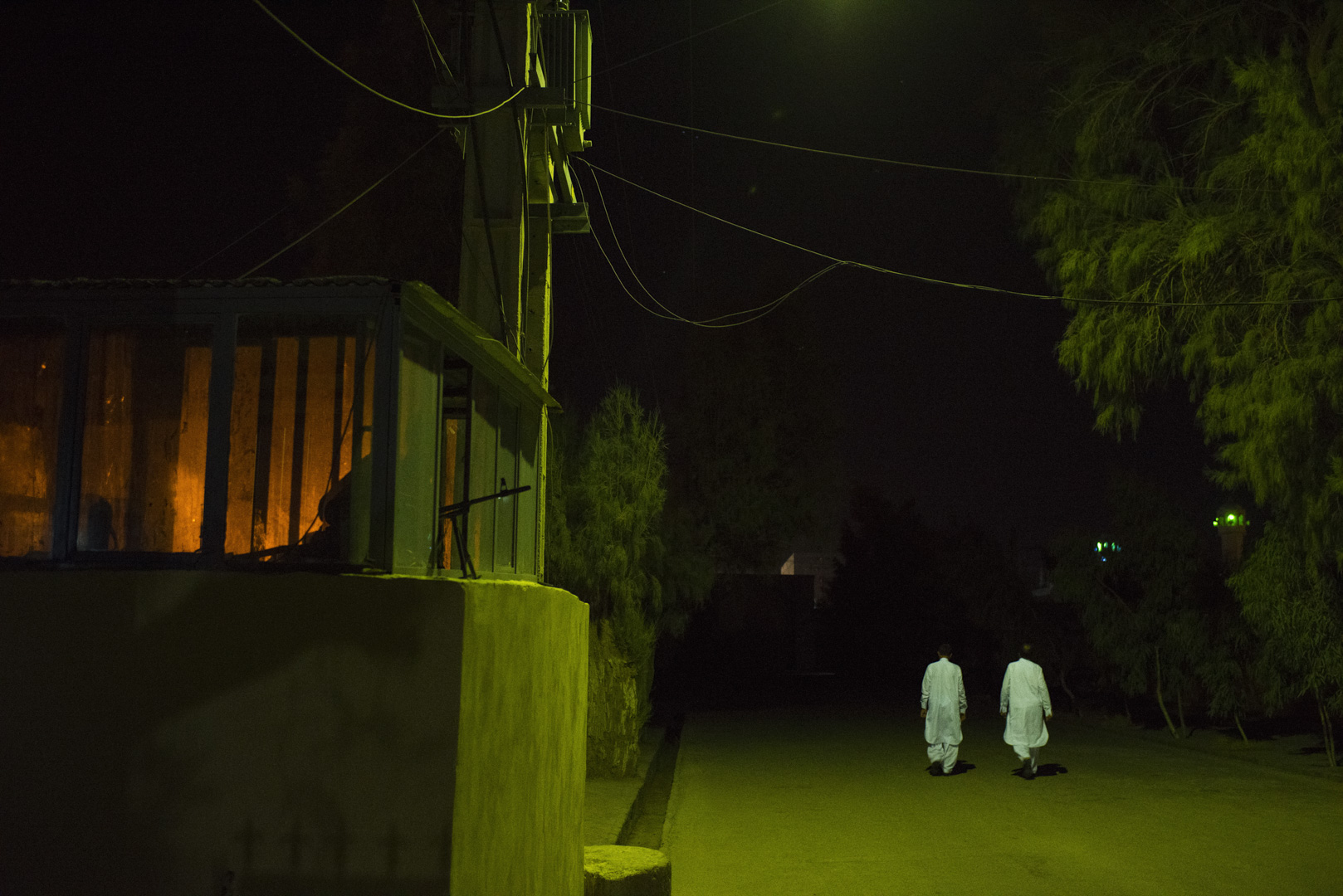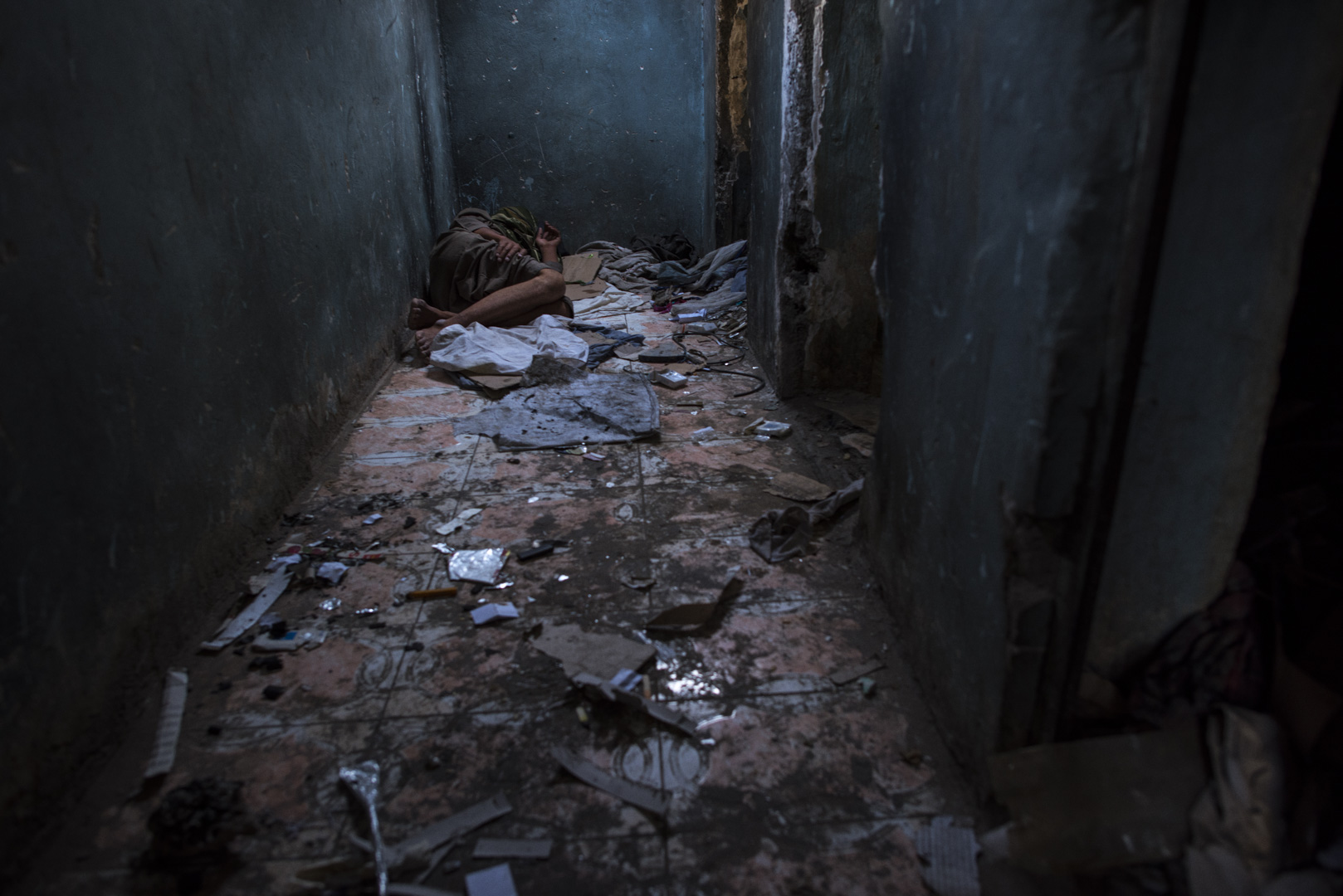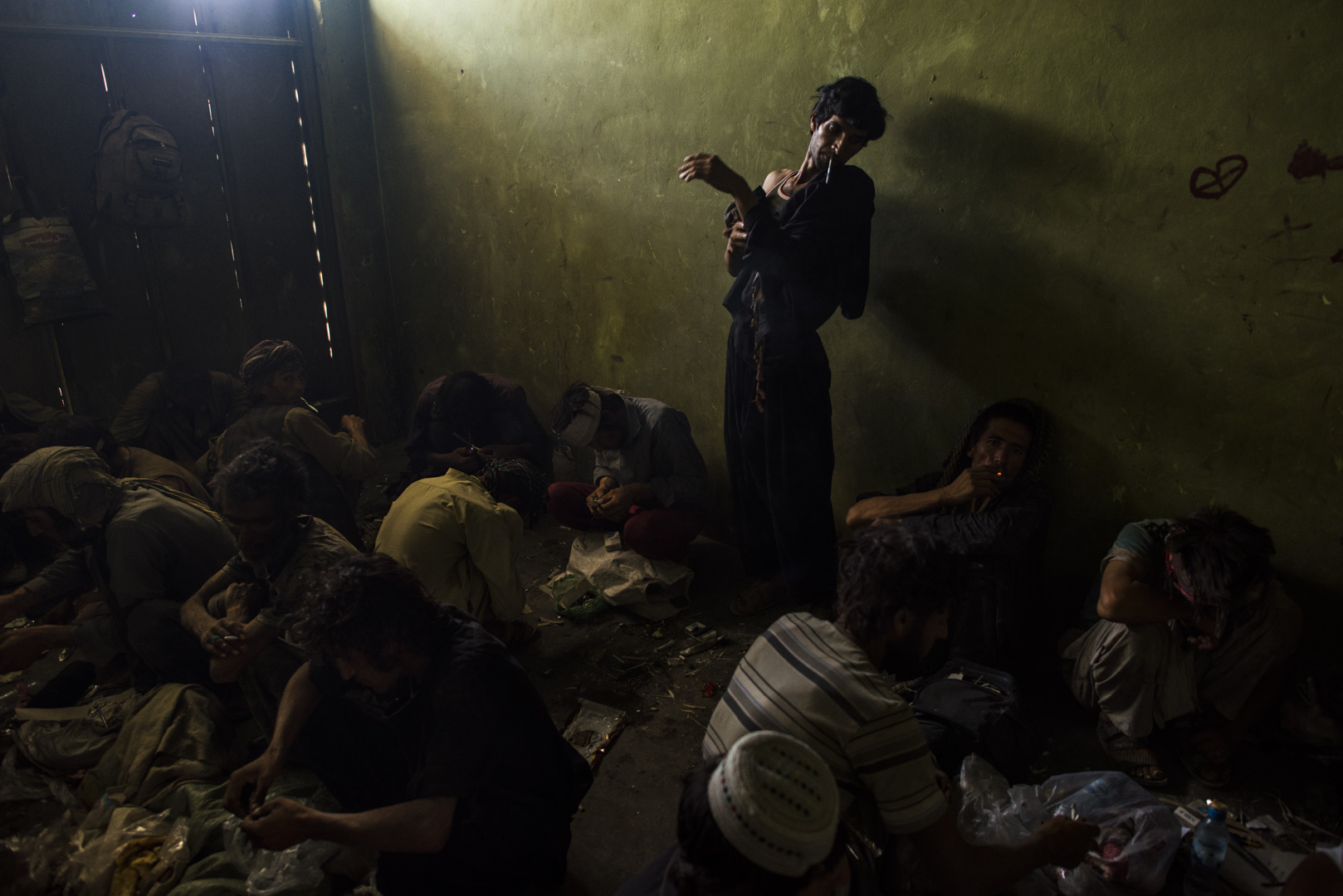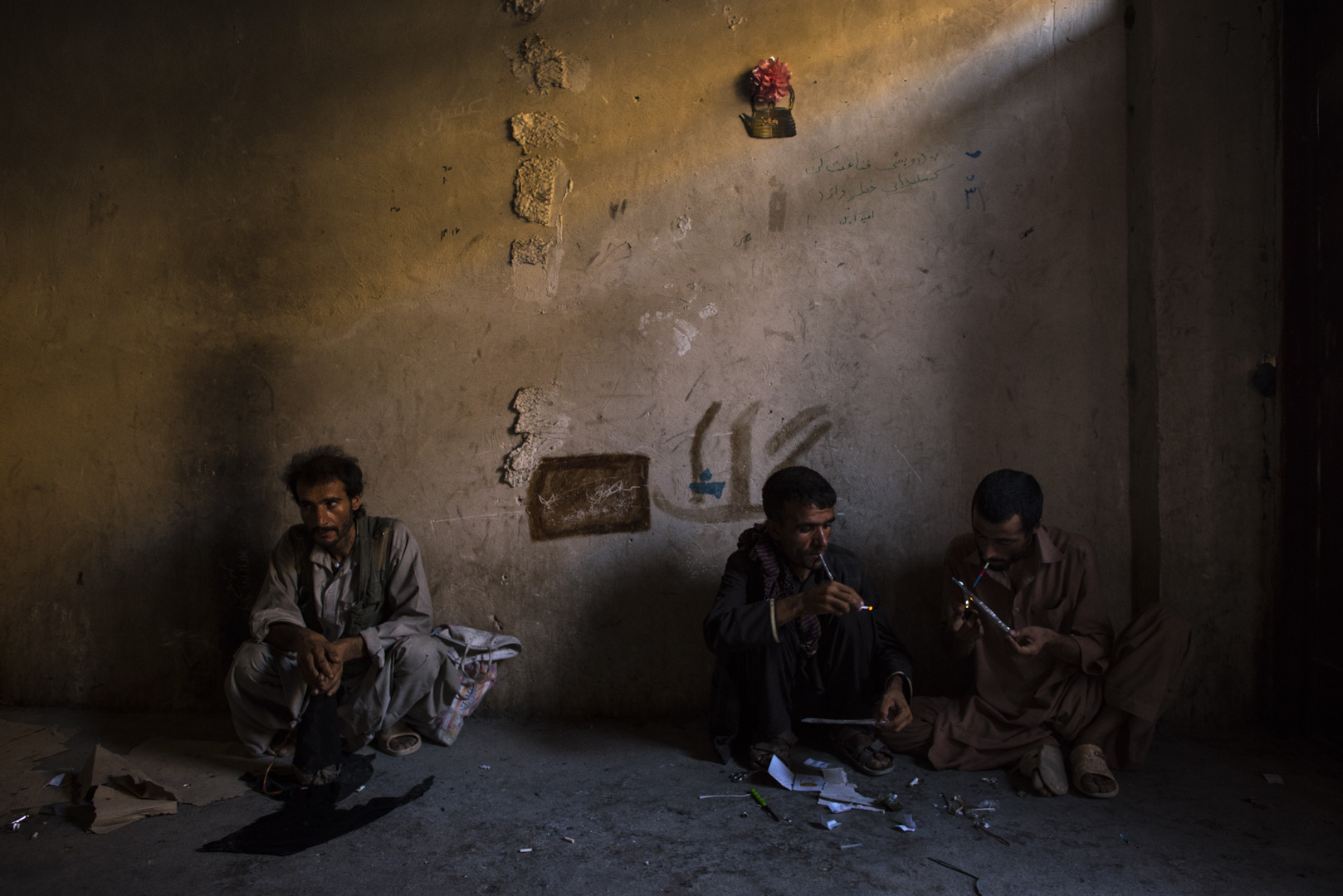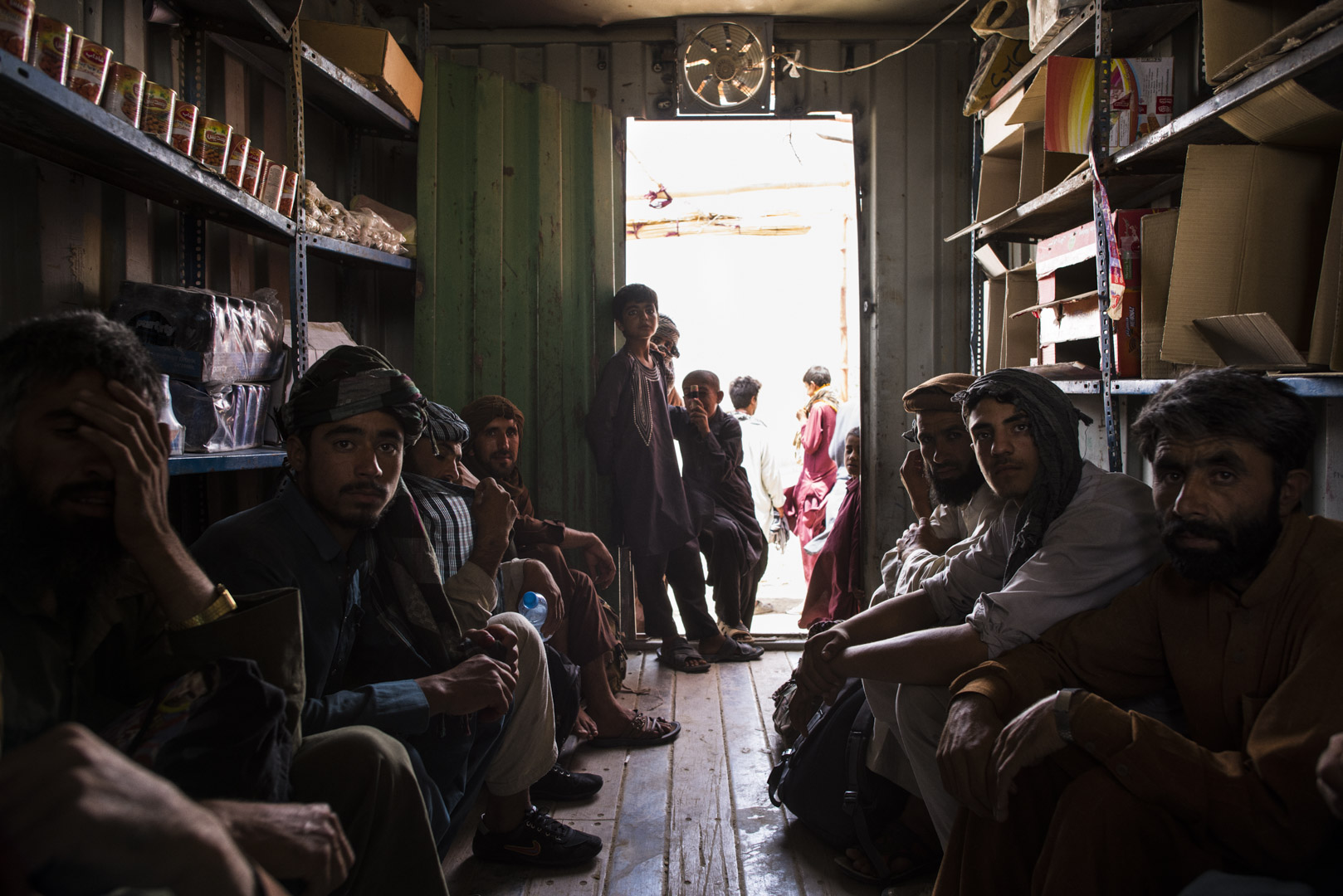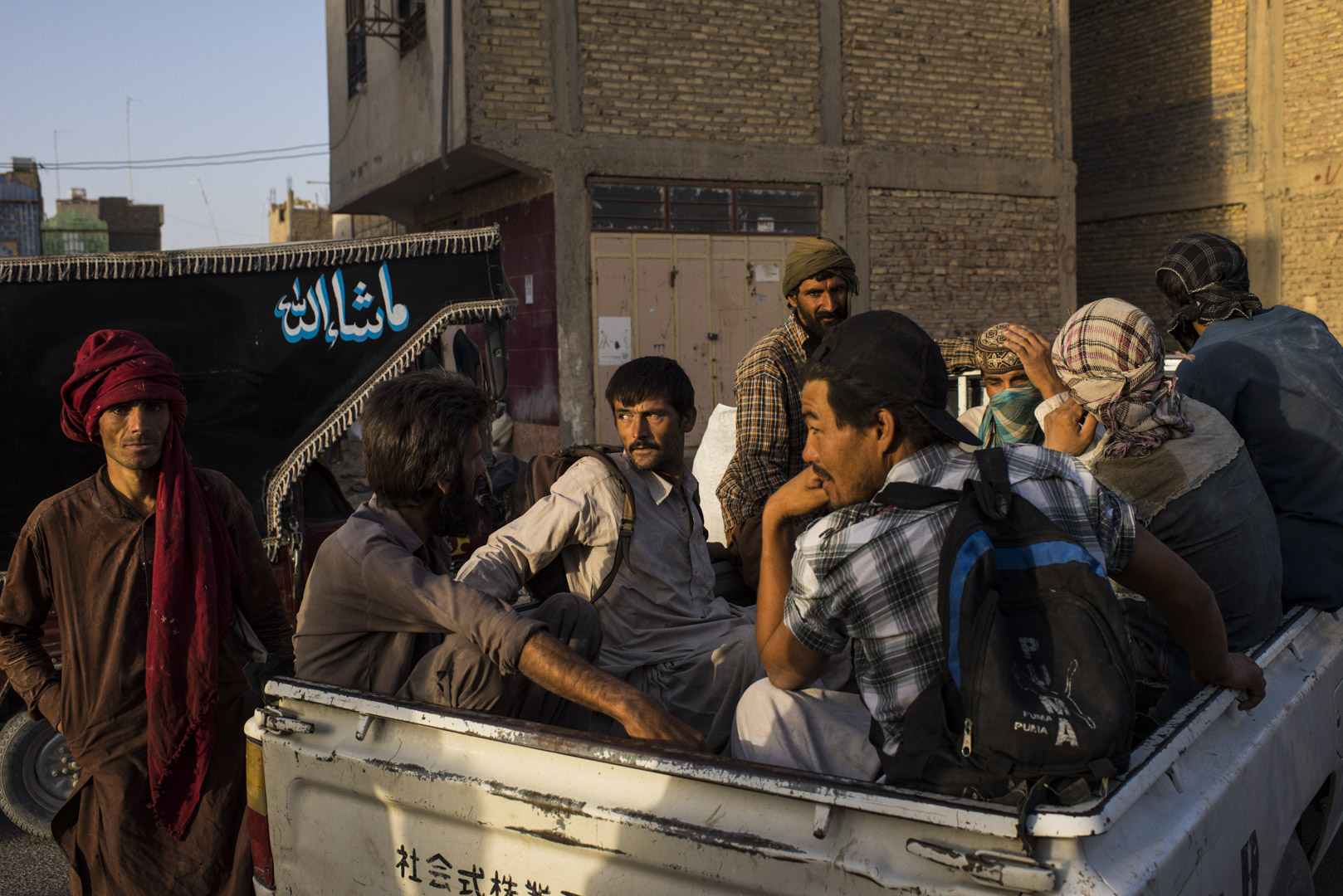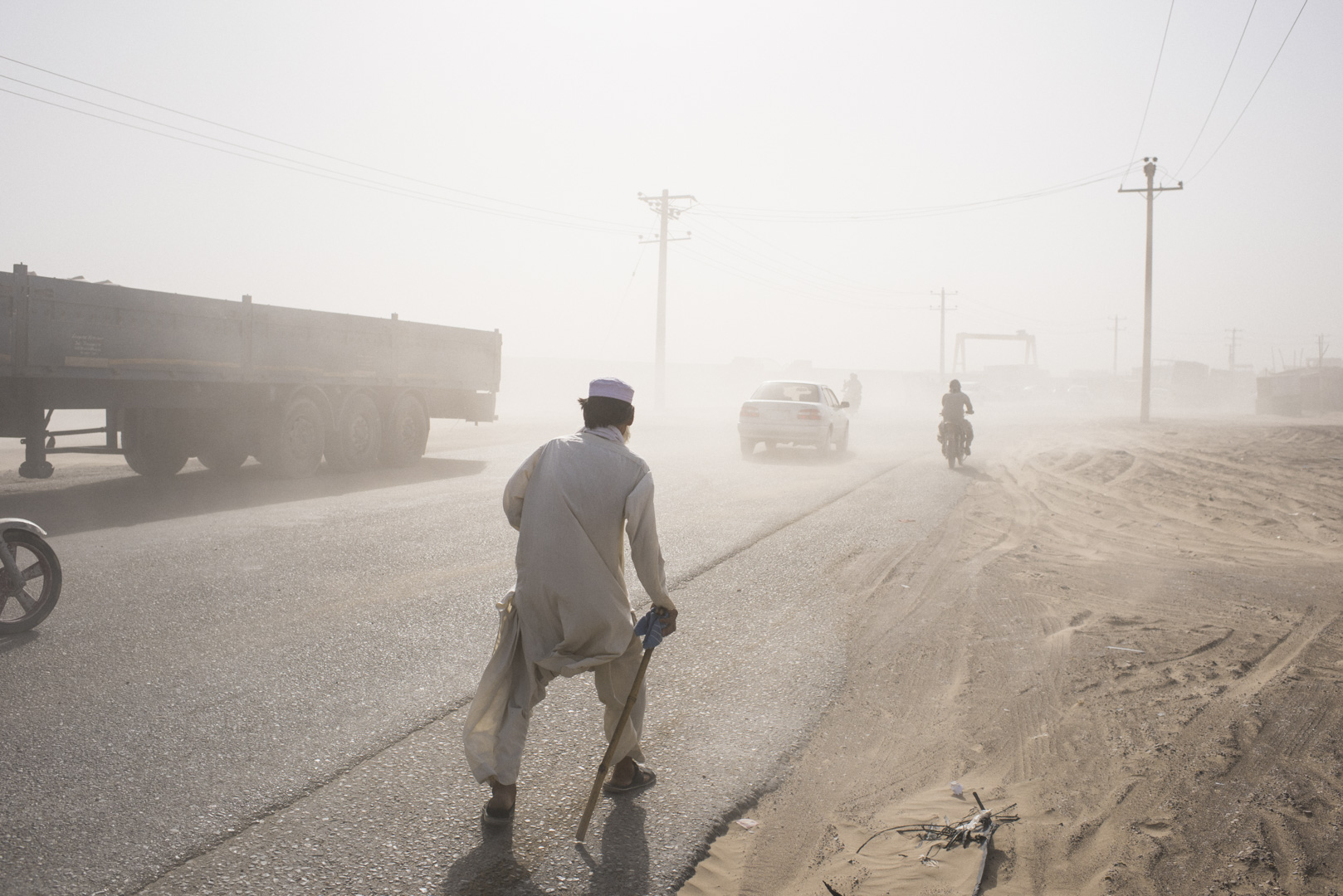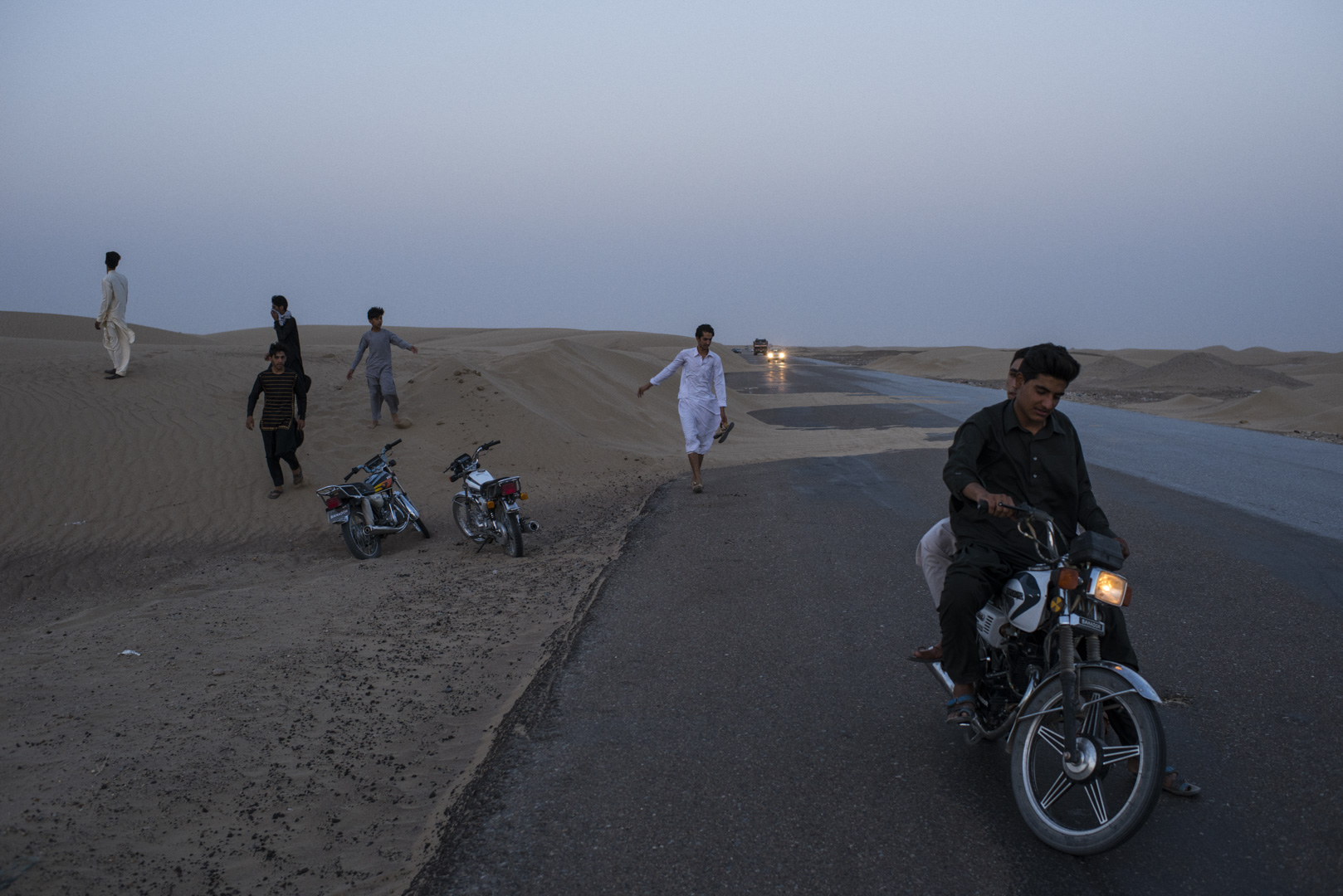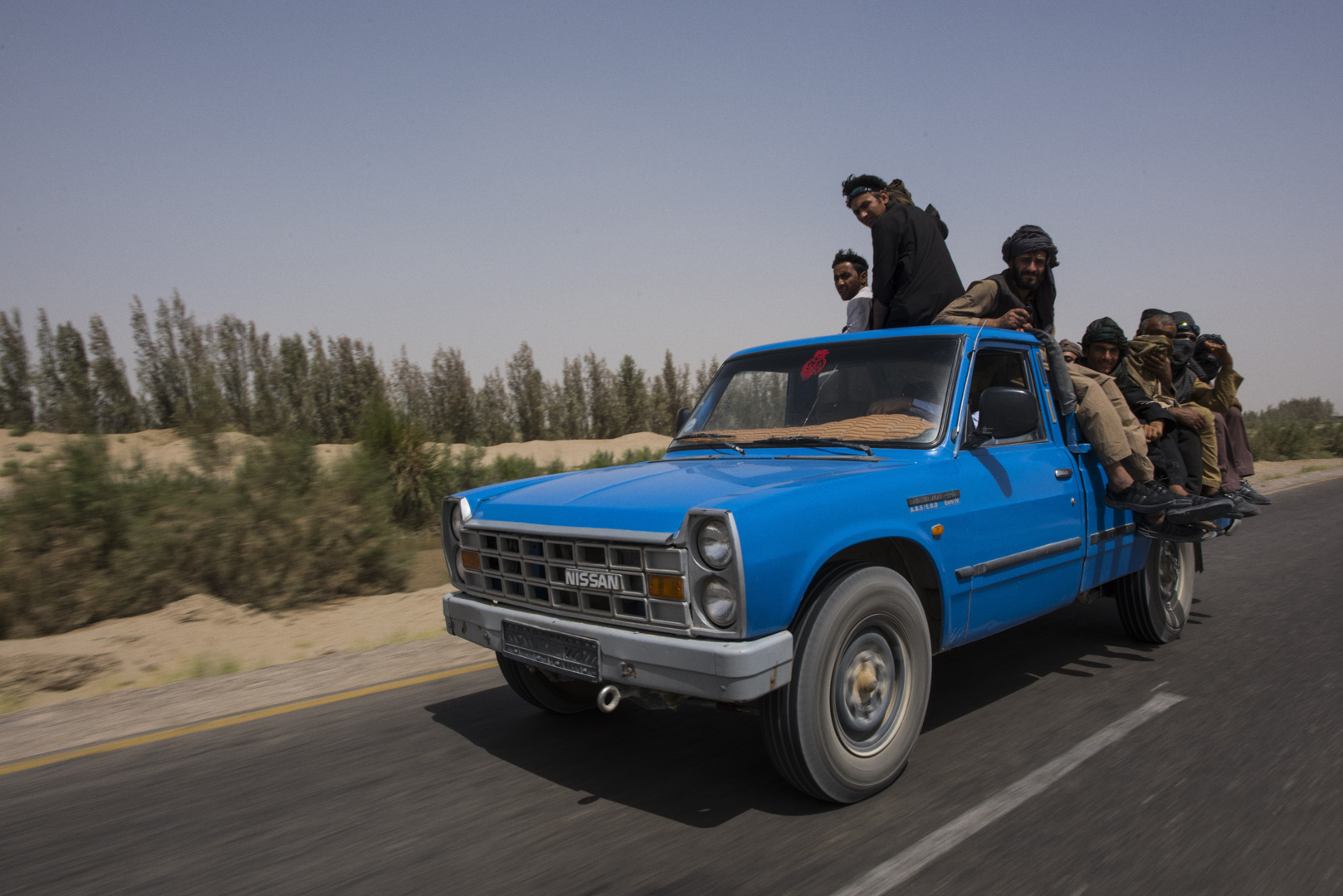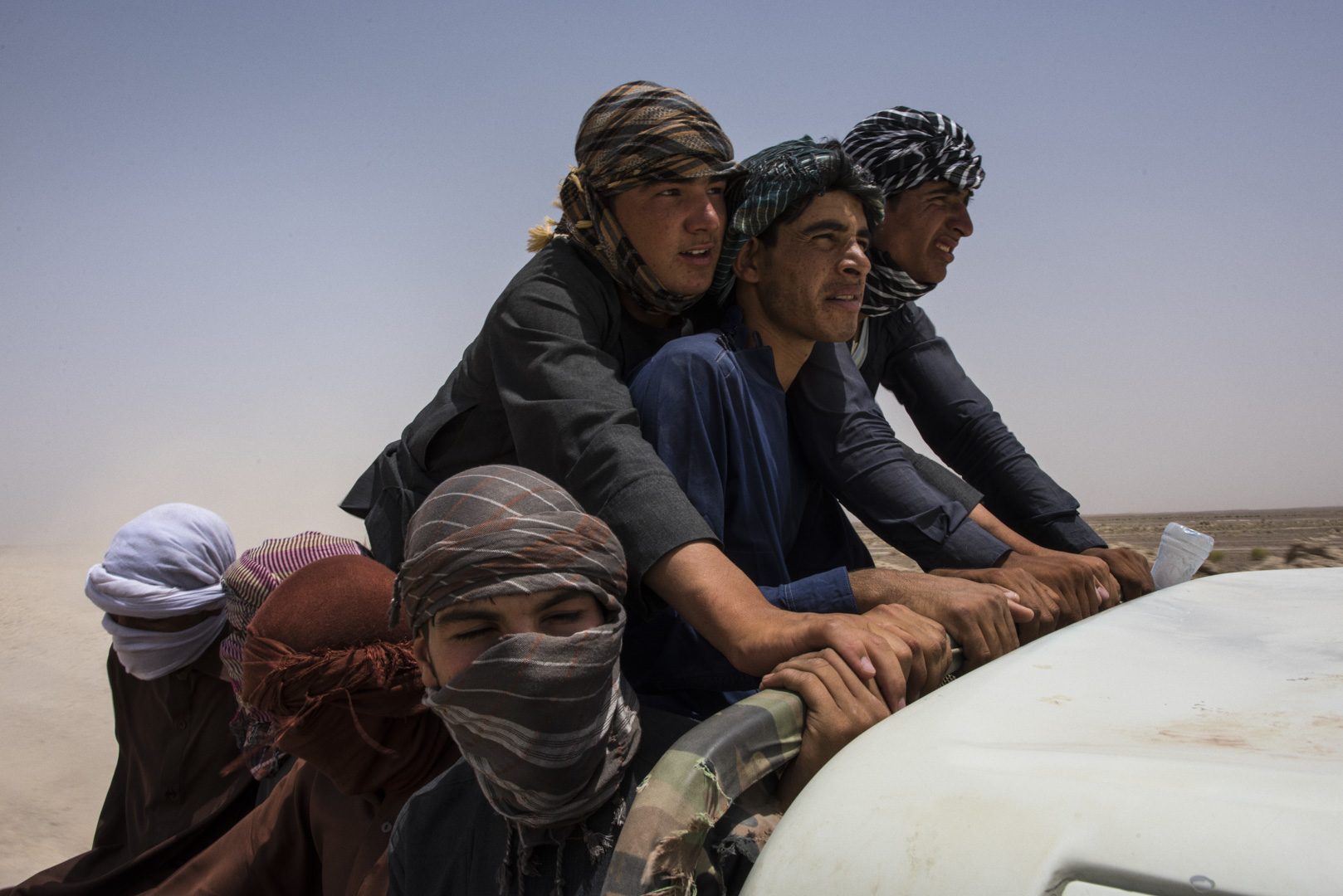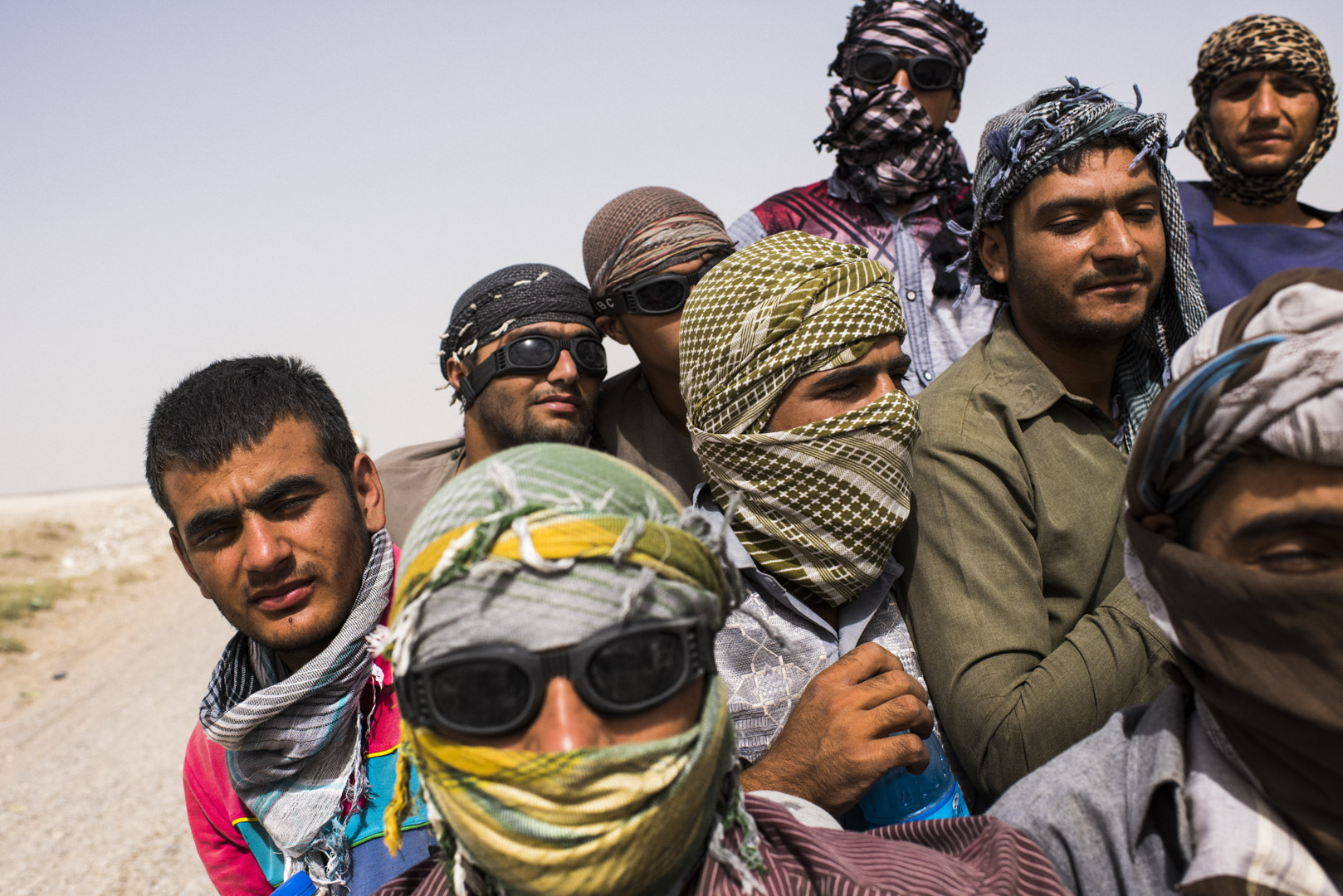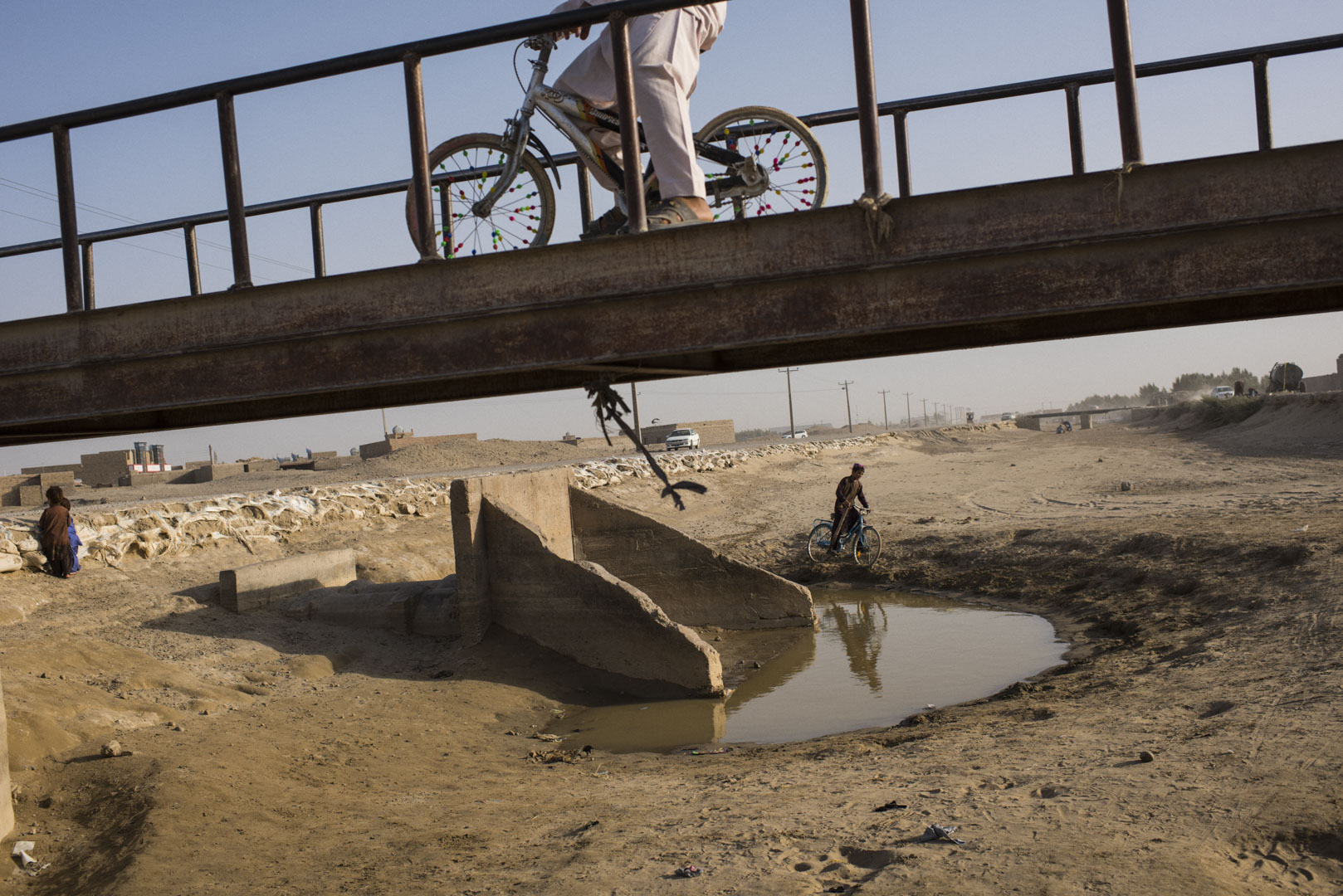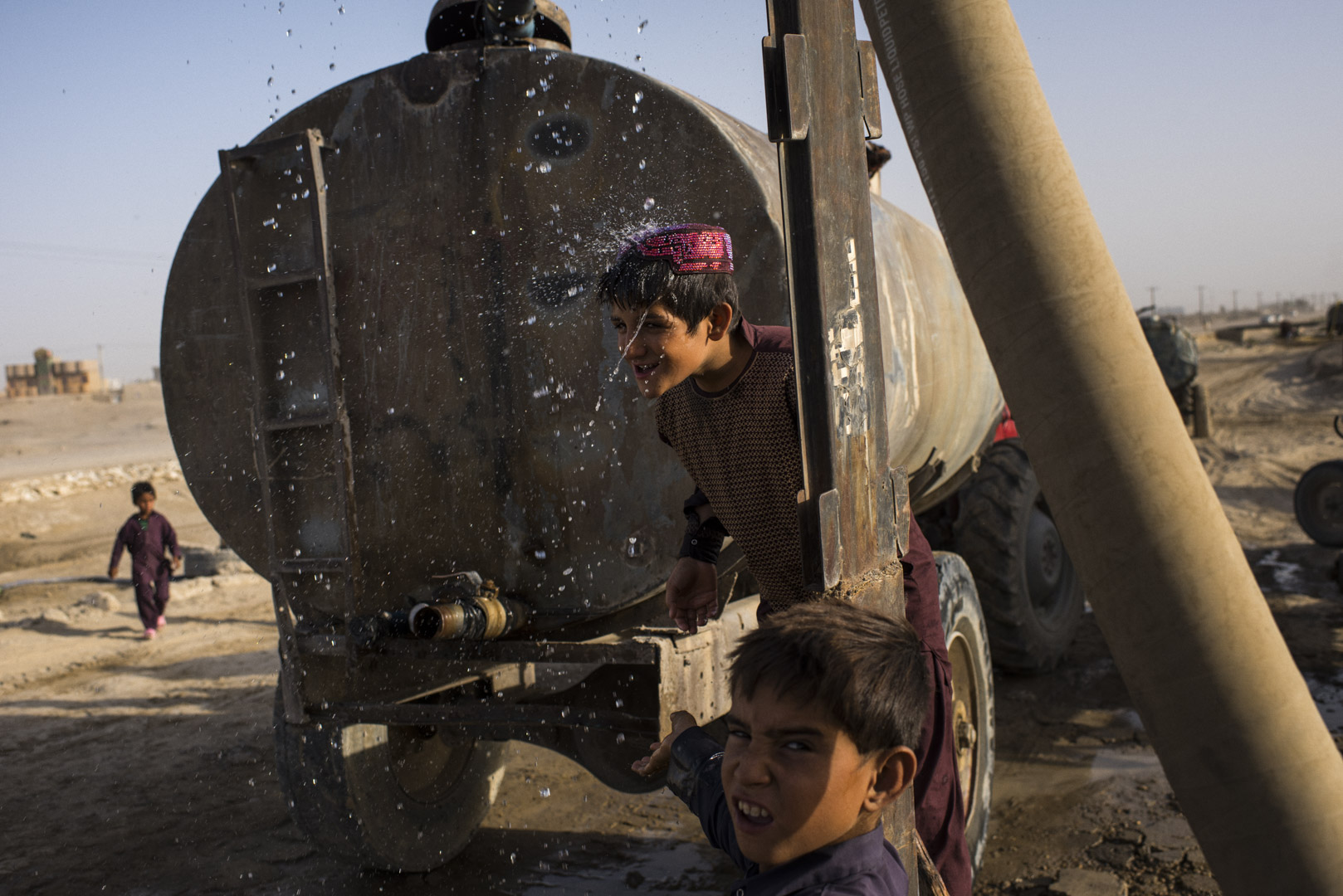On the edge of Afghanistan, 2016
In Nimruz, a South-West province of Afghanistan, more than 200 000 Afghans have crossed the Iranian border in 18 months in spite of Taliban attacks, kidnapping dangers and extreme climate. It is their only hope for a better future. The region is located at the border of Pakistan and Iran; it is one of the most dangerous of Afghanistan and one of the driest. An ancient hub for Taliban drug smuggling, it has become the only possible passageway for the Afghans who wish to leave their country, for lack of hope in face of the economic crisis and the increasing violence.
Their first step is Iran, where salaries are twice as high. Then comes Turkey and Europe for the boldest. But before that, travelers have to find a smuggler, pay him 500USD and drive through the desert in overcrowded pickups under Taliban threat. They need to bribe border guards, policemen, Pakistani guides and kidnappers in order to hope to reach Iran.
Every day, thousands of young men from all over Afghanistan arrive to try and cross the border. Before achieving that, they sometimes have to wait for weeks in cheap crowded hotels in Zaranj, the provincial capital and last Afghan city. The sun-drenched town doesn’t come to life before sunset, a moment when drug addicts gather to consume opium or crystal meth in abandoned shops. Most of them have picked up their drug habit in Iran, because it was their payment, sometimes because they were forced to consume to work longer without eating, because they missed their family or to forget labor-related pain.
A human smuggler, who calls migrants “relatives” claims that his activity has brought him enough money to get two of his kids to school. To him, it is hunger that drives people away from their homes. Hunger that urges them to search for a more dignified life in spite of all the appalling conditions they have to go through to achieve this hope. He claims he doesn’t lie to them about life in Europe. But as long as Afghanistan stays in this state, Zaranj will be the only way out for many Afghans.
